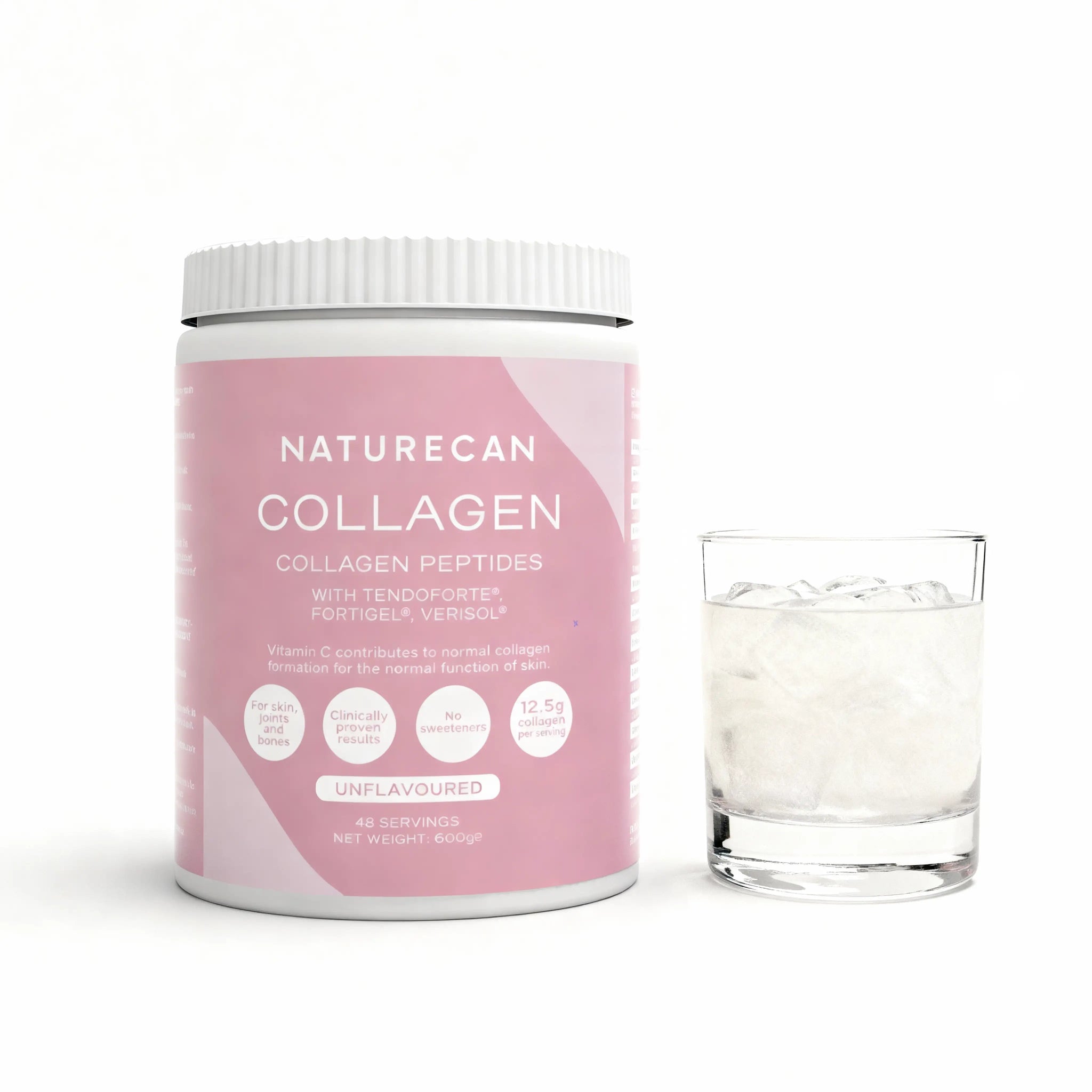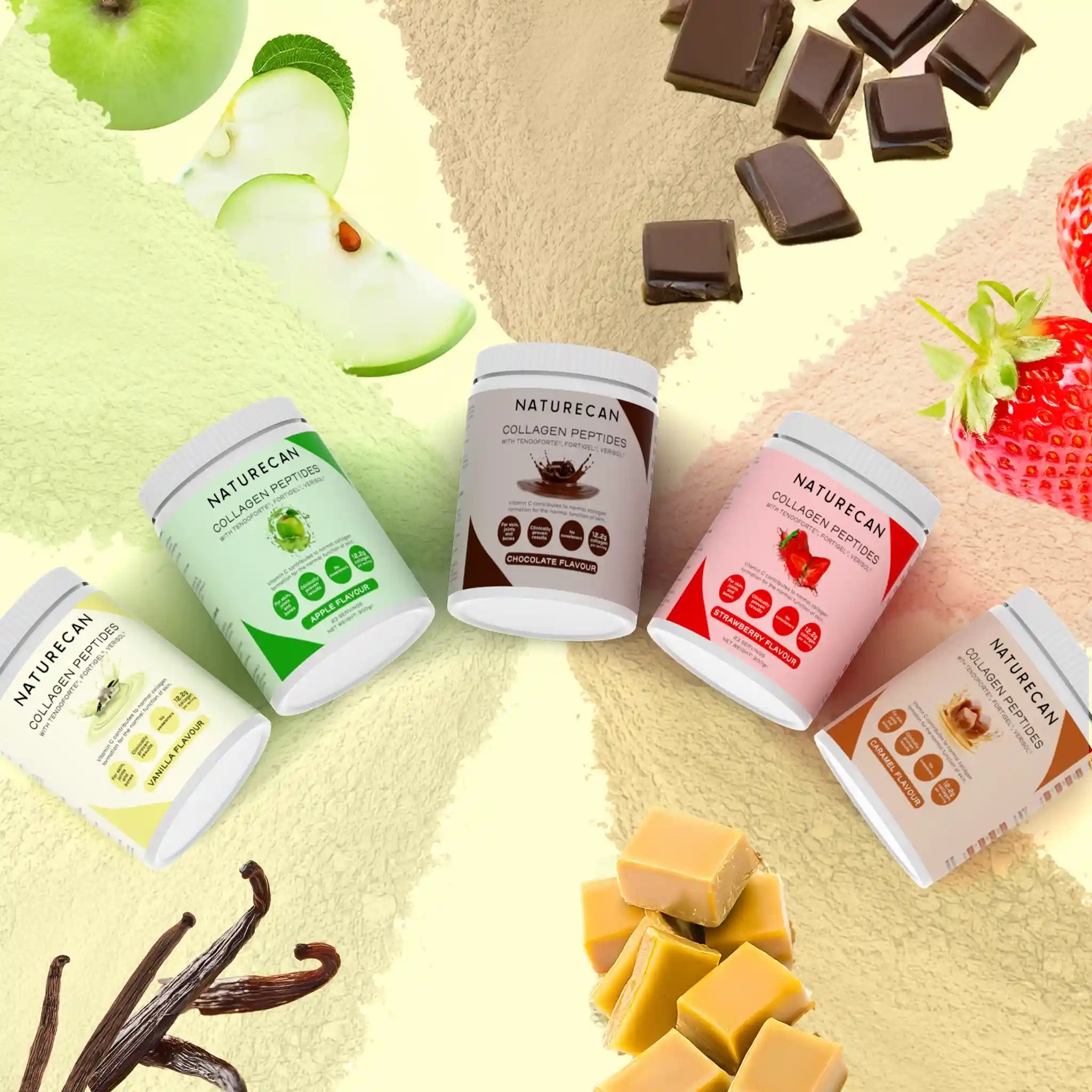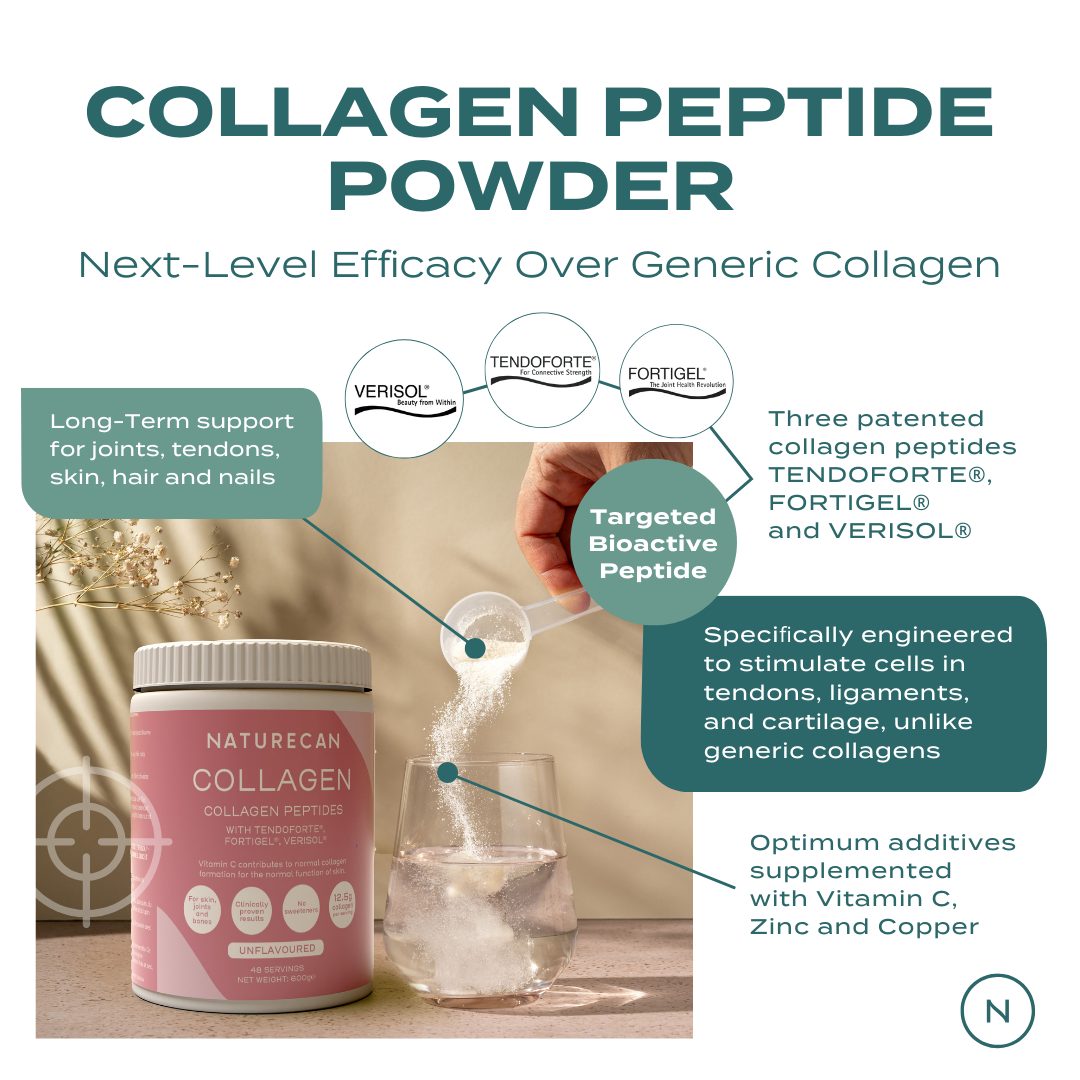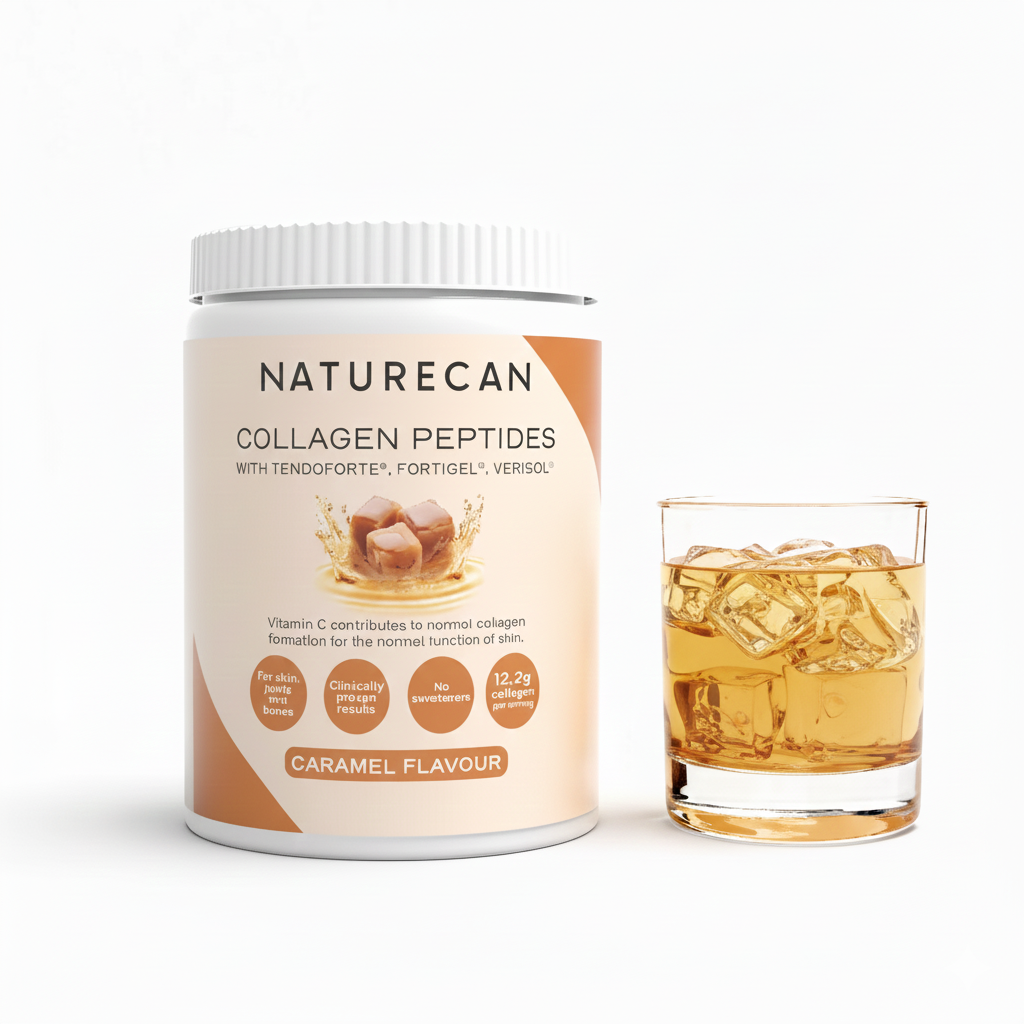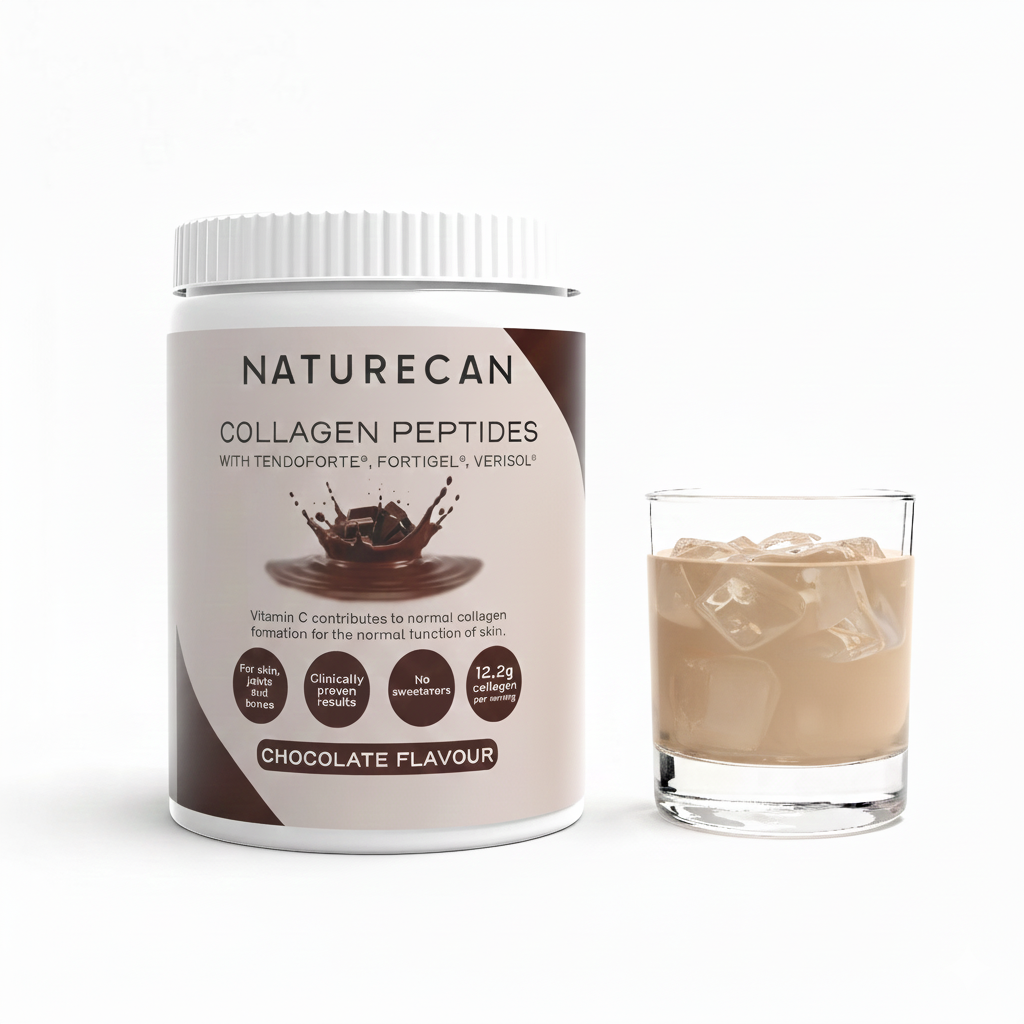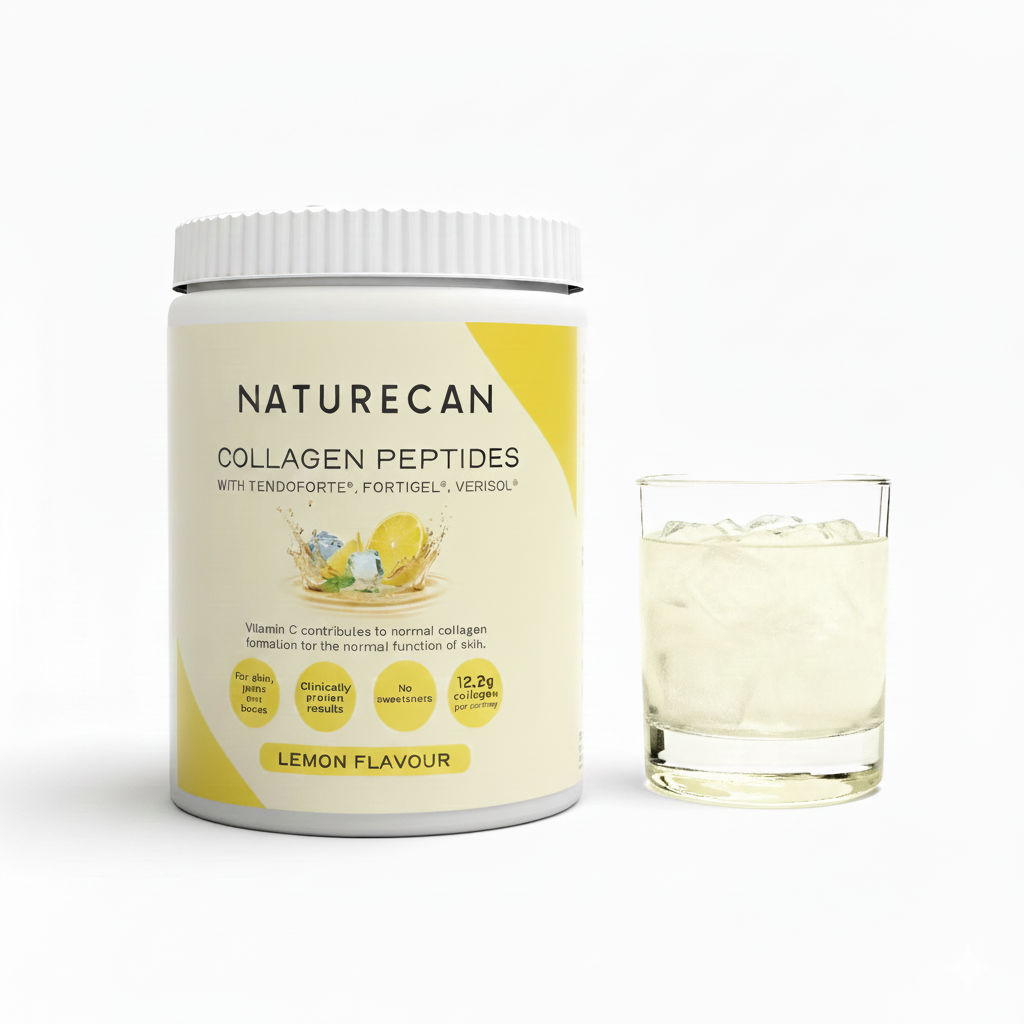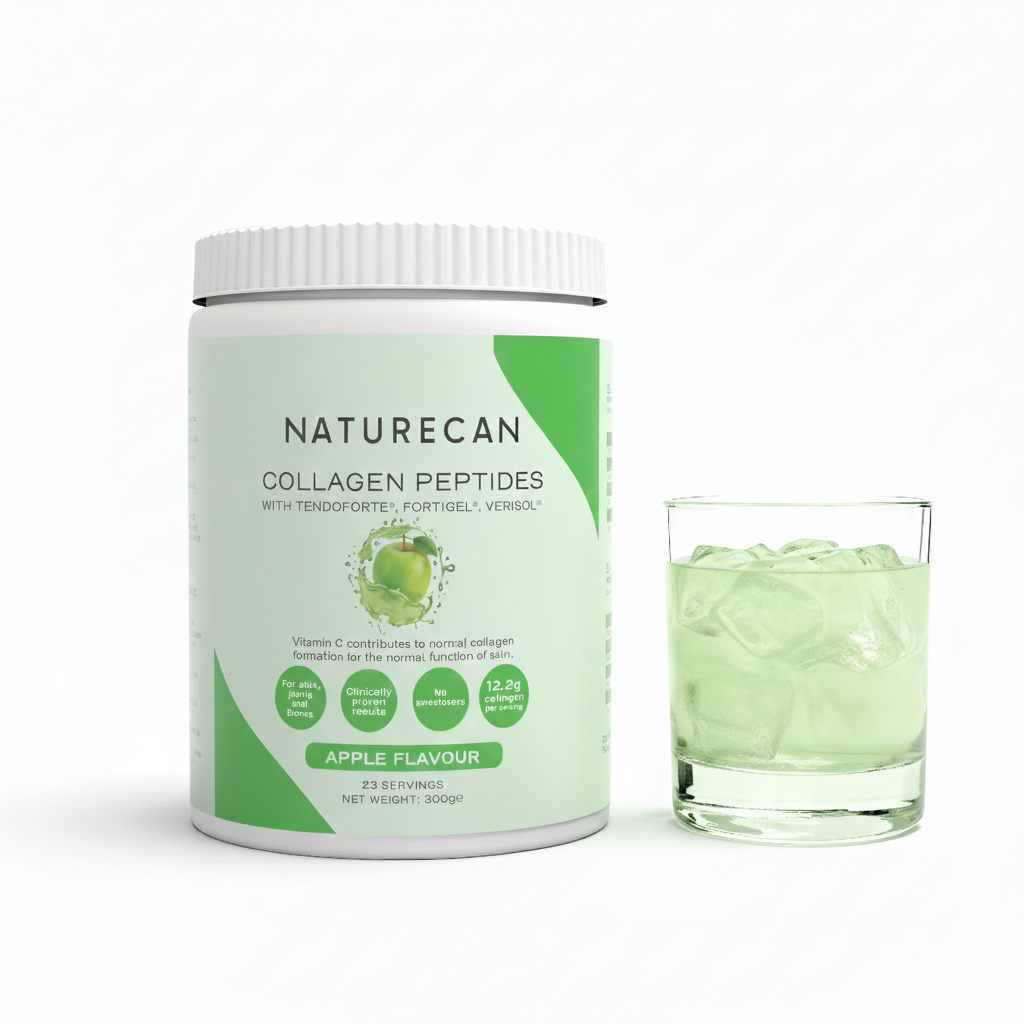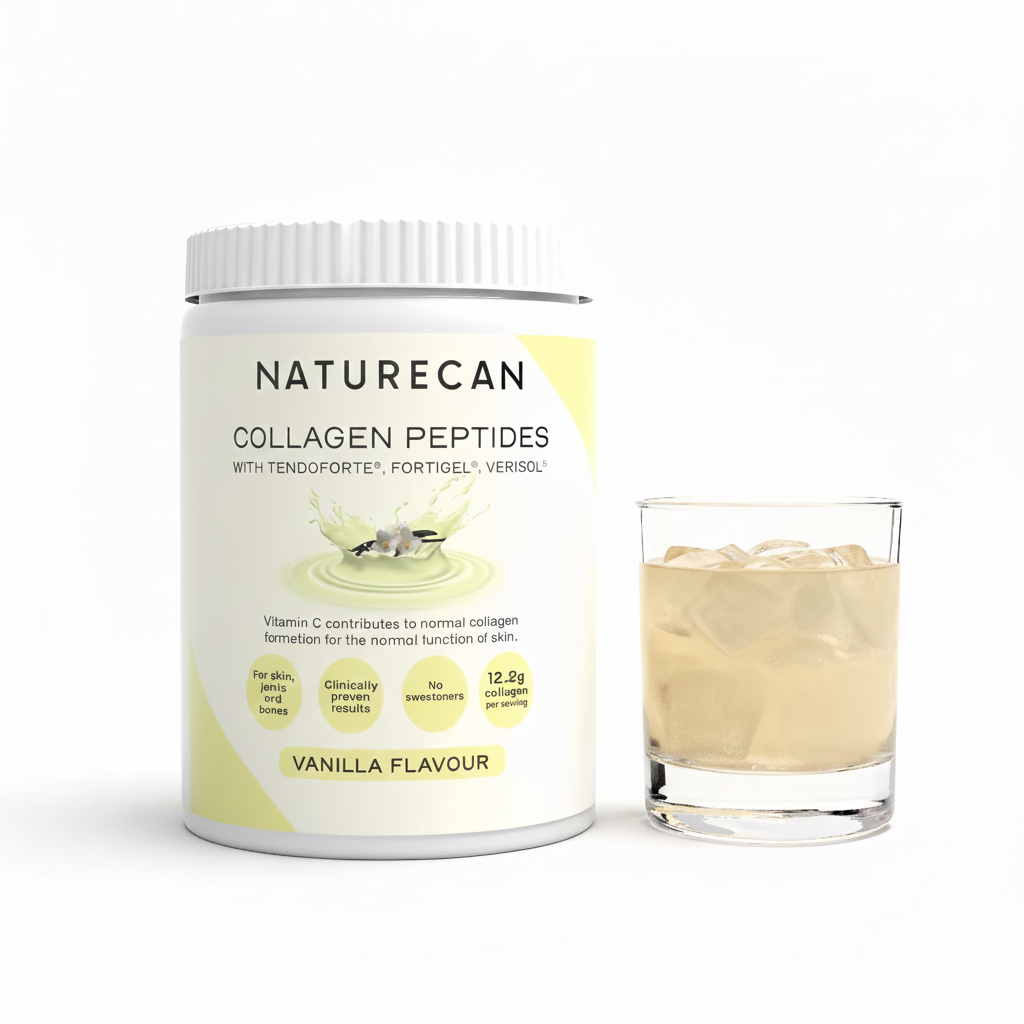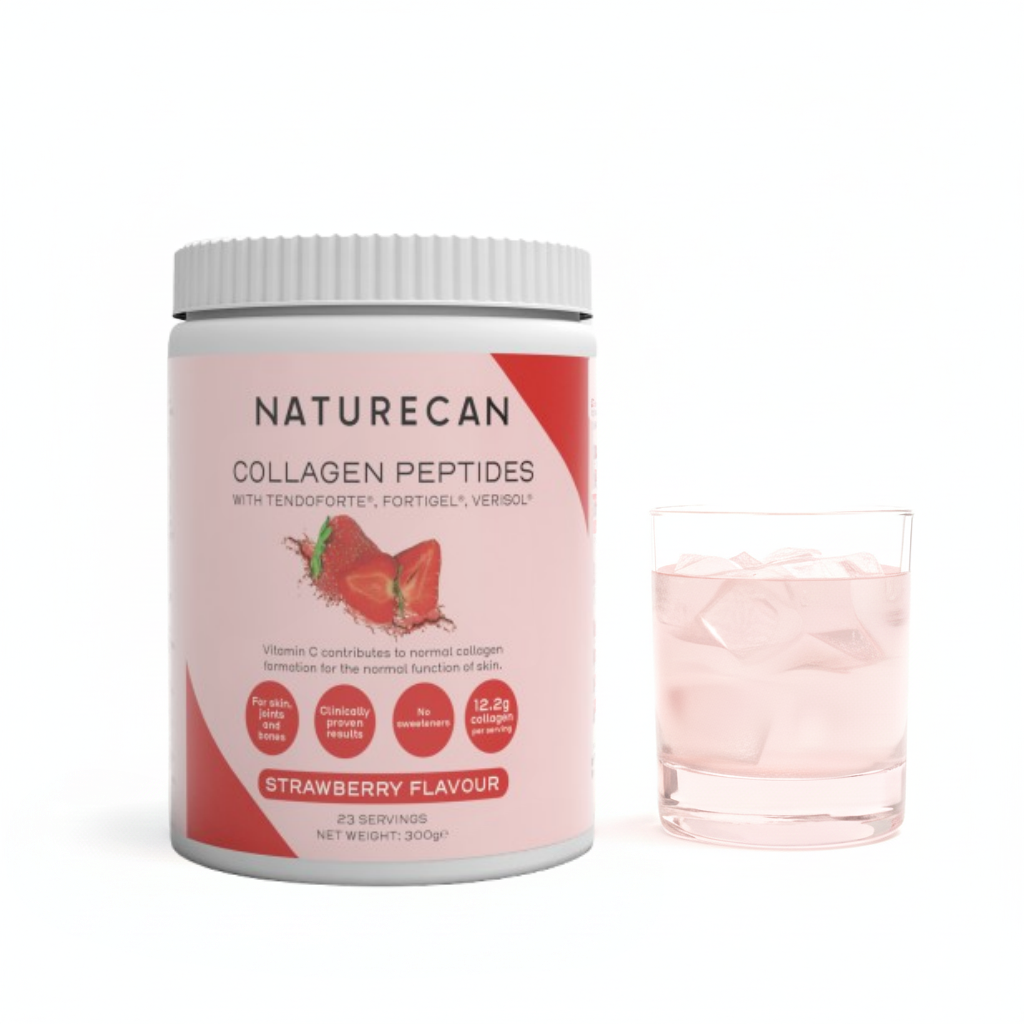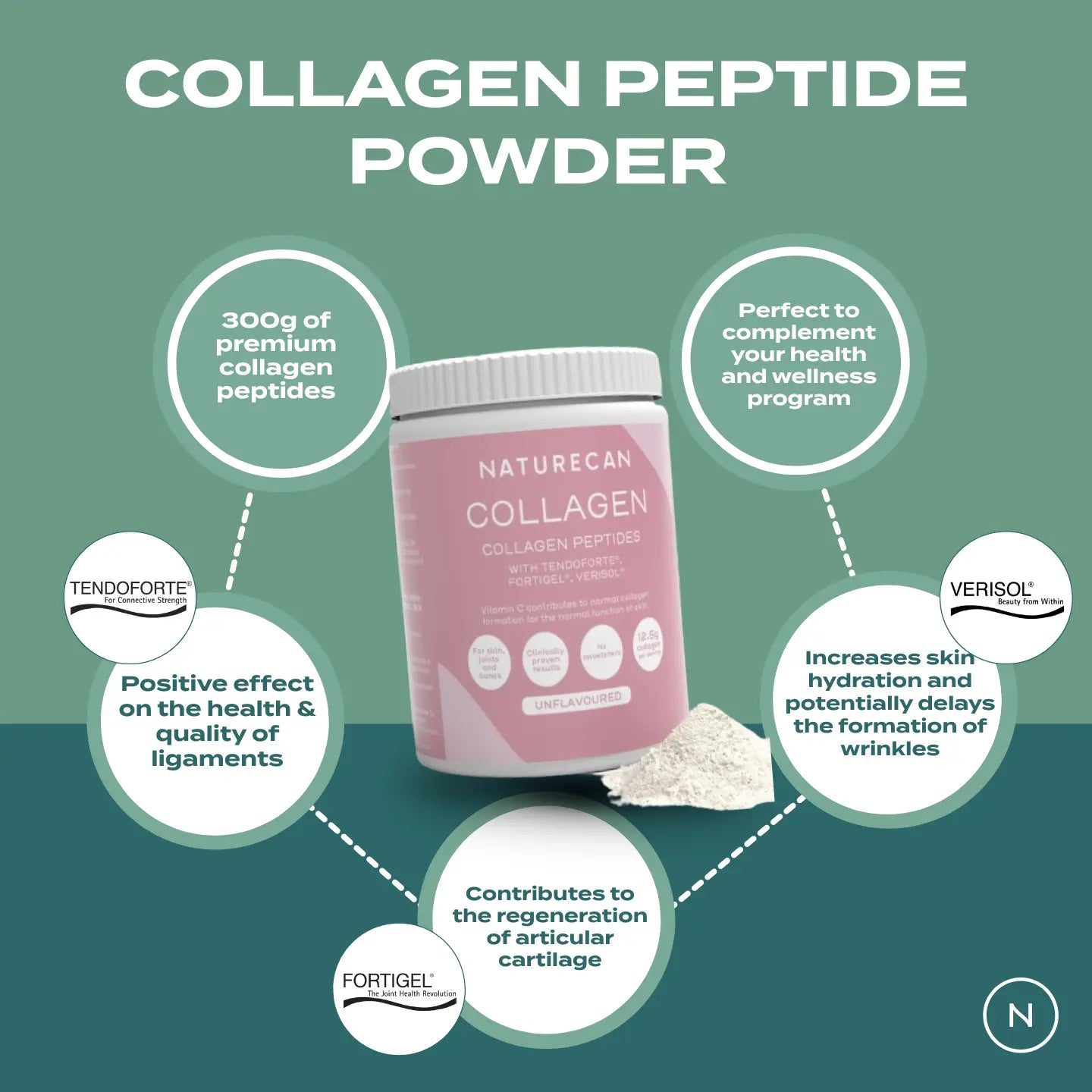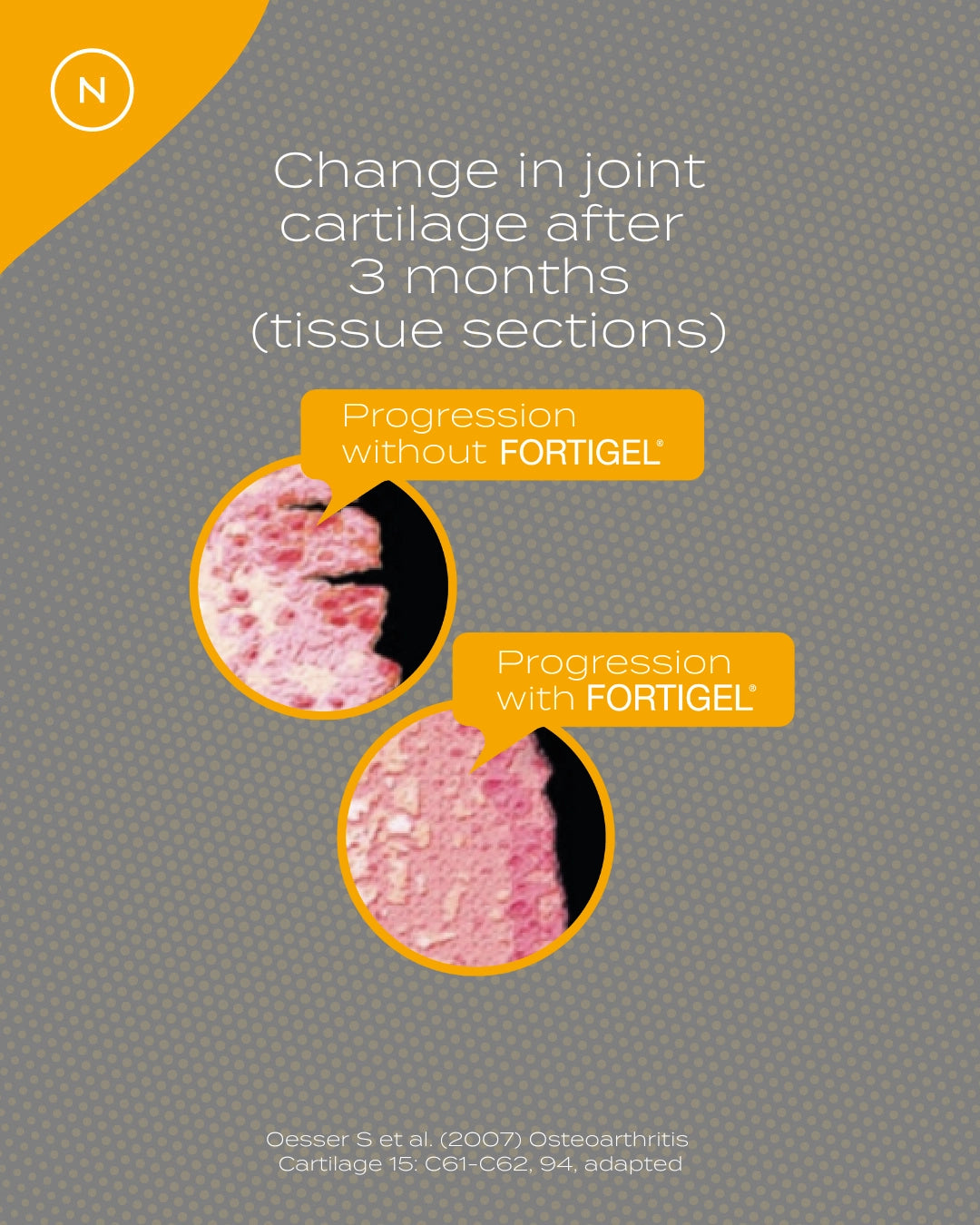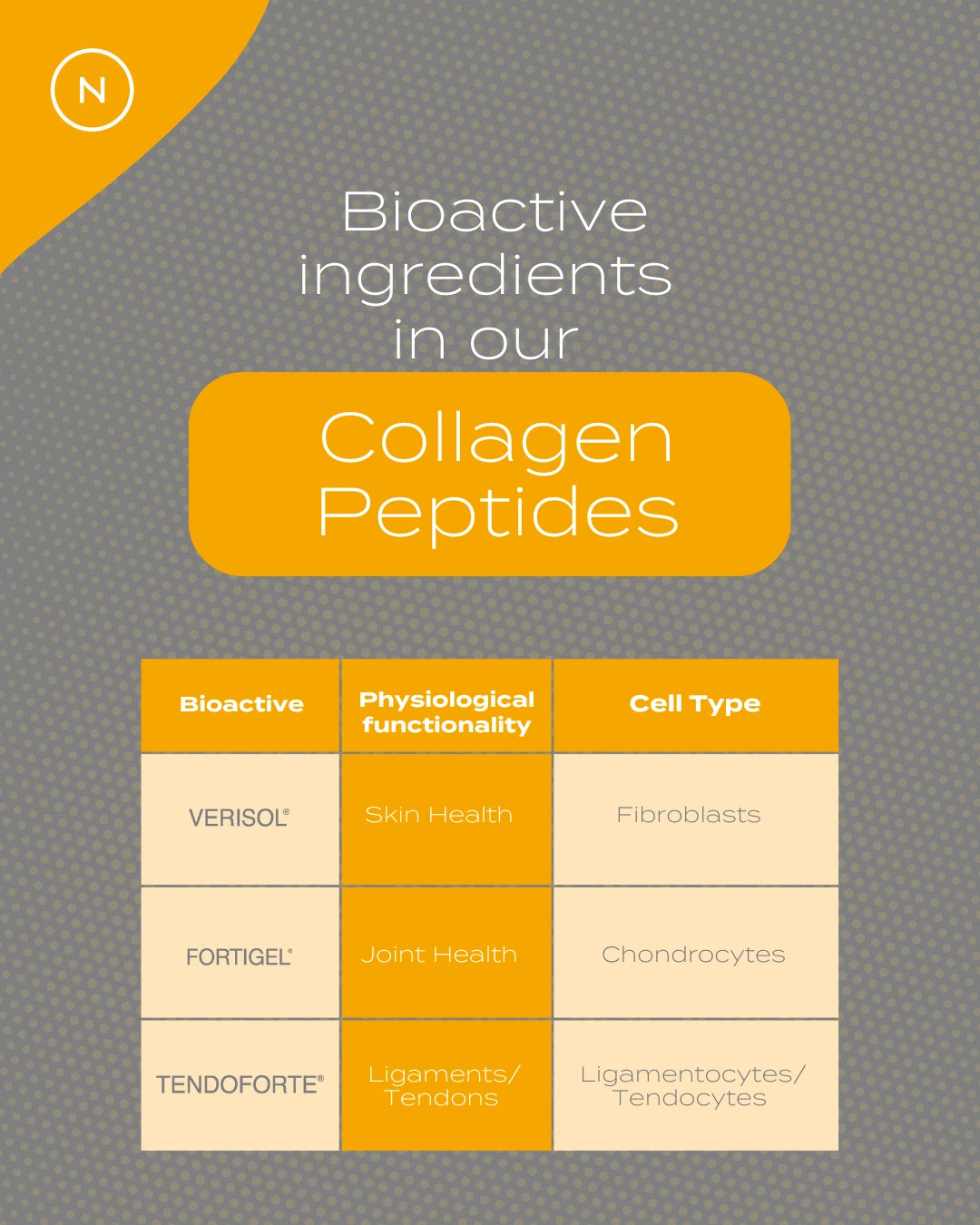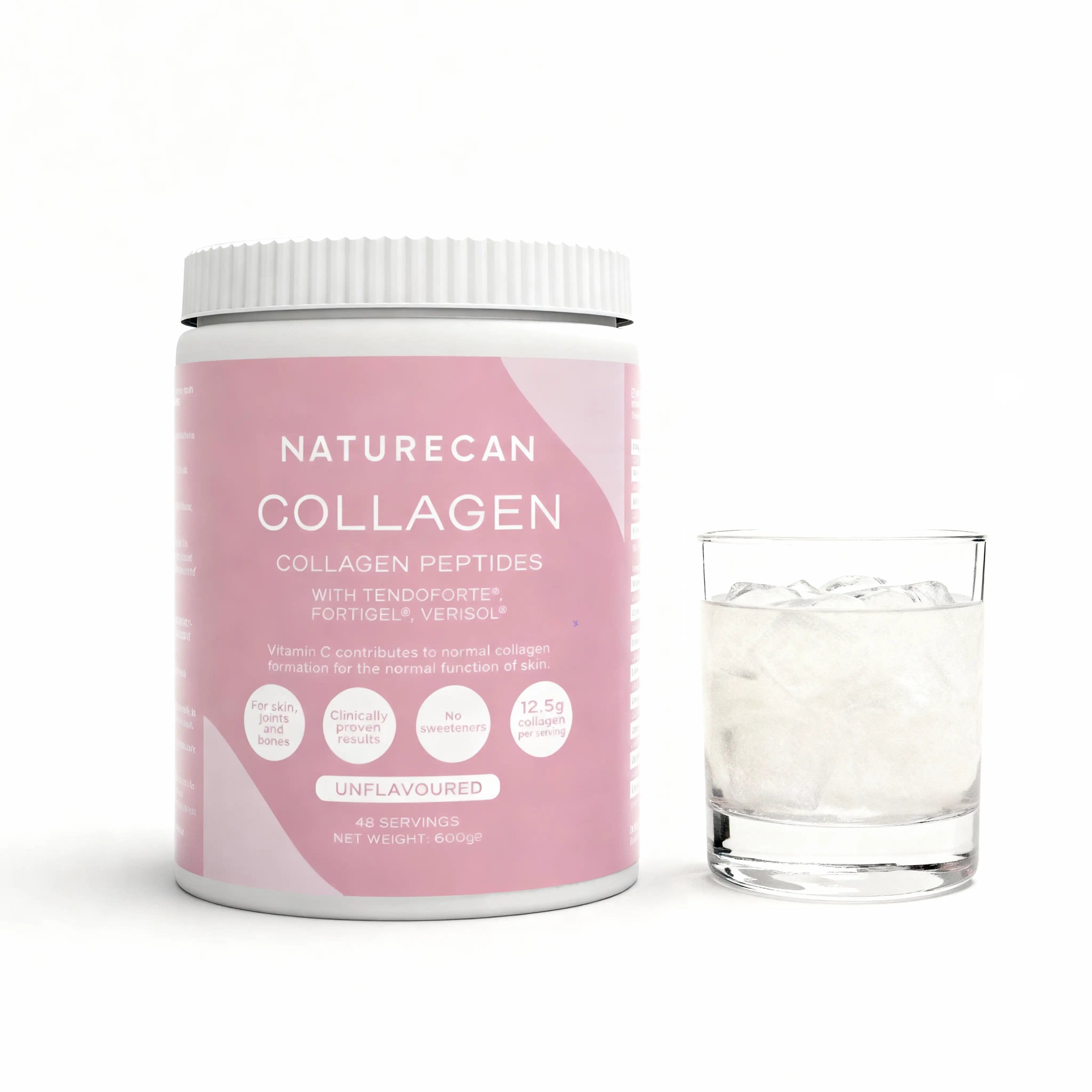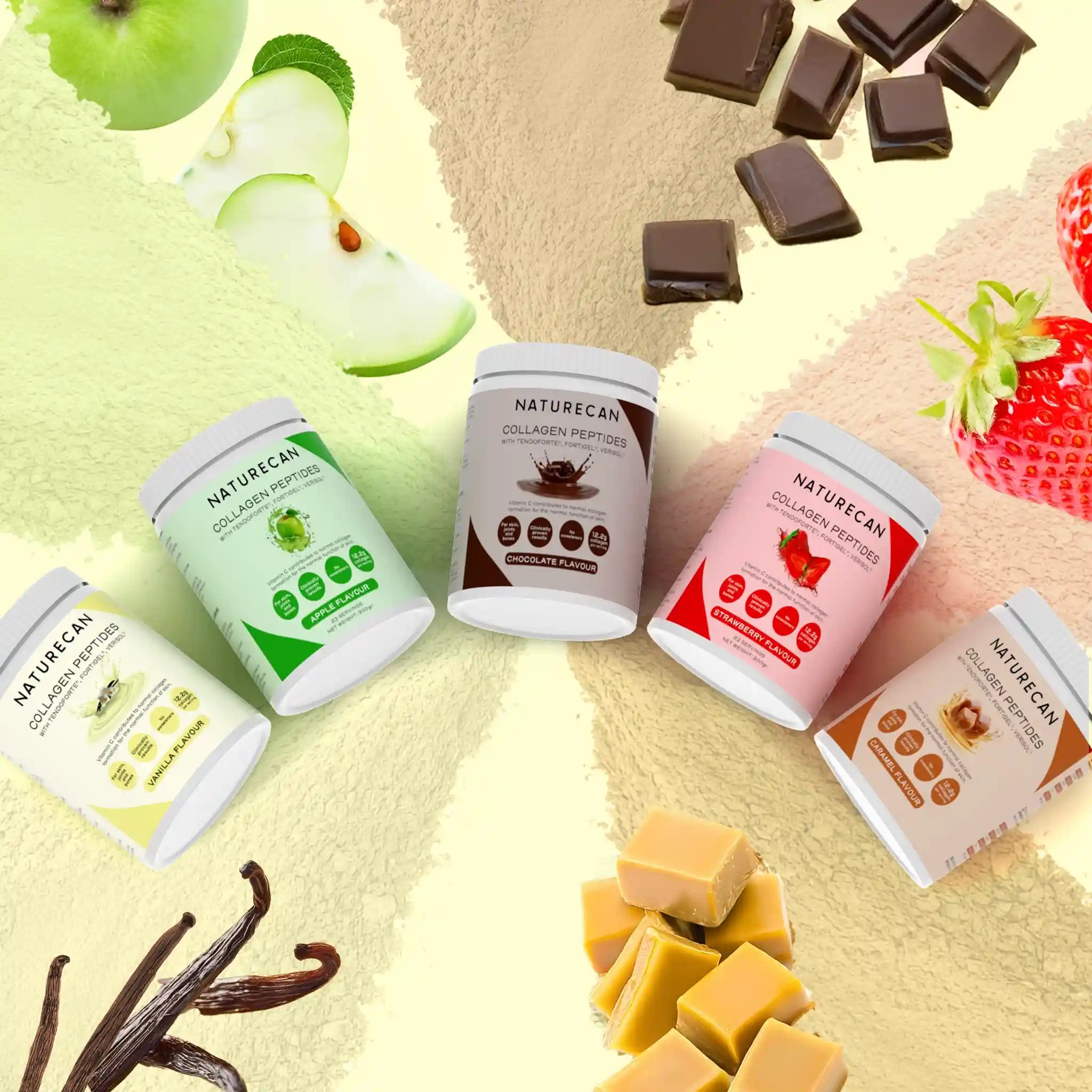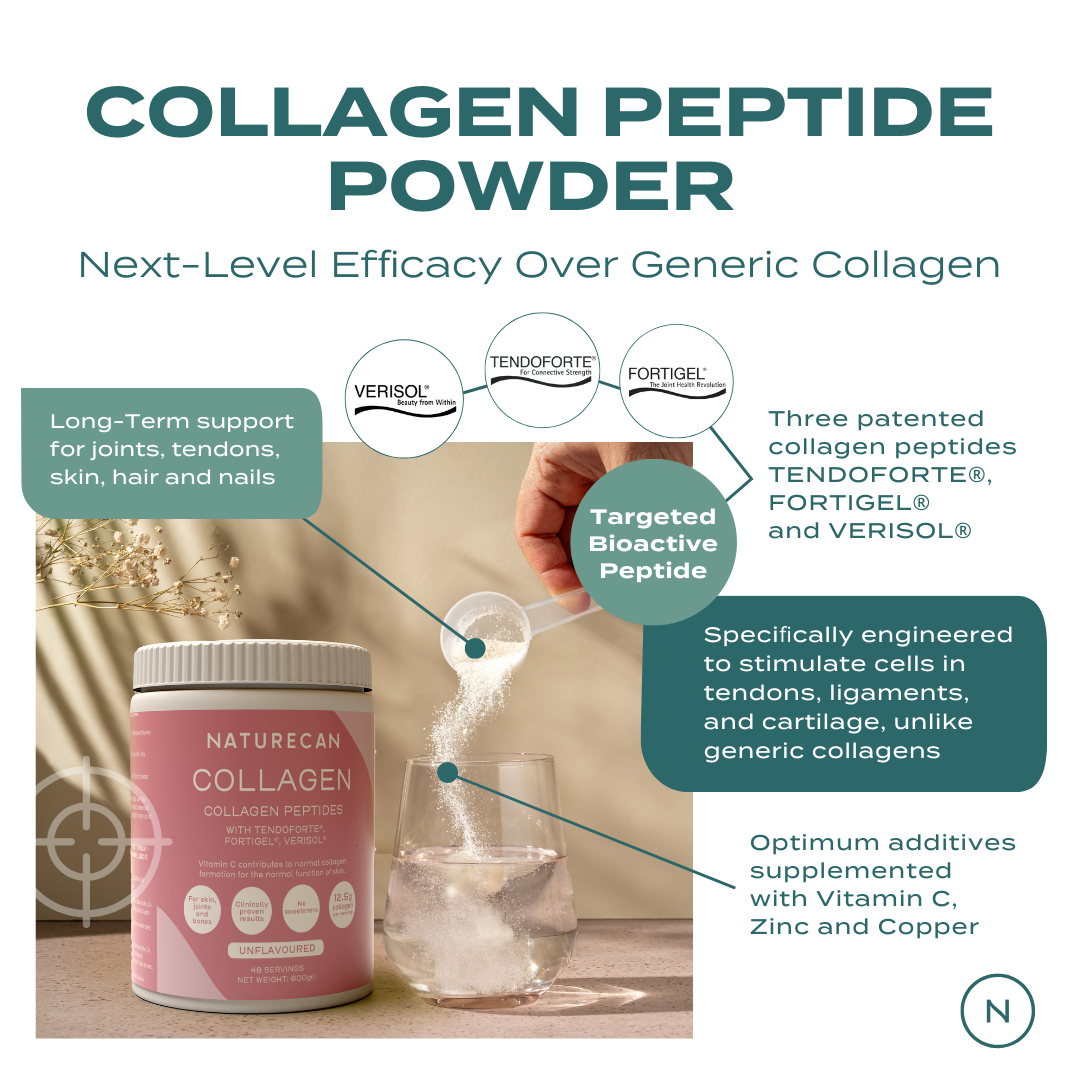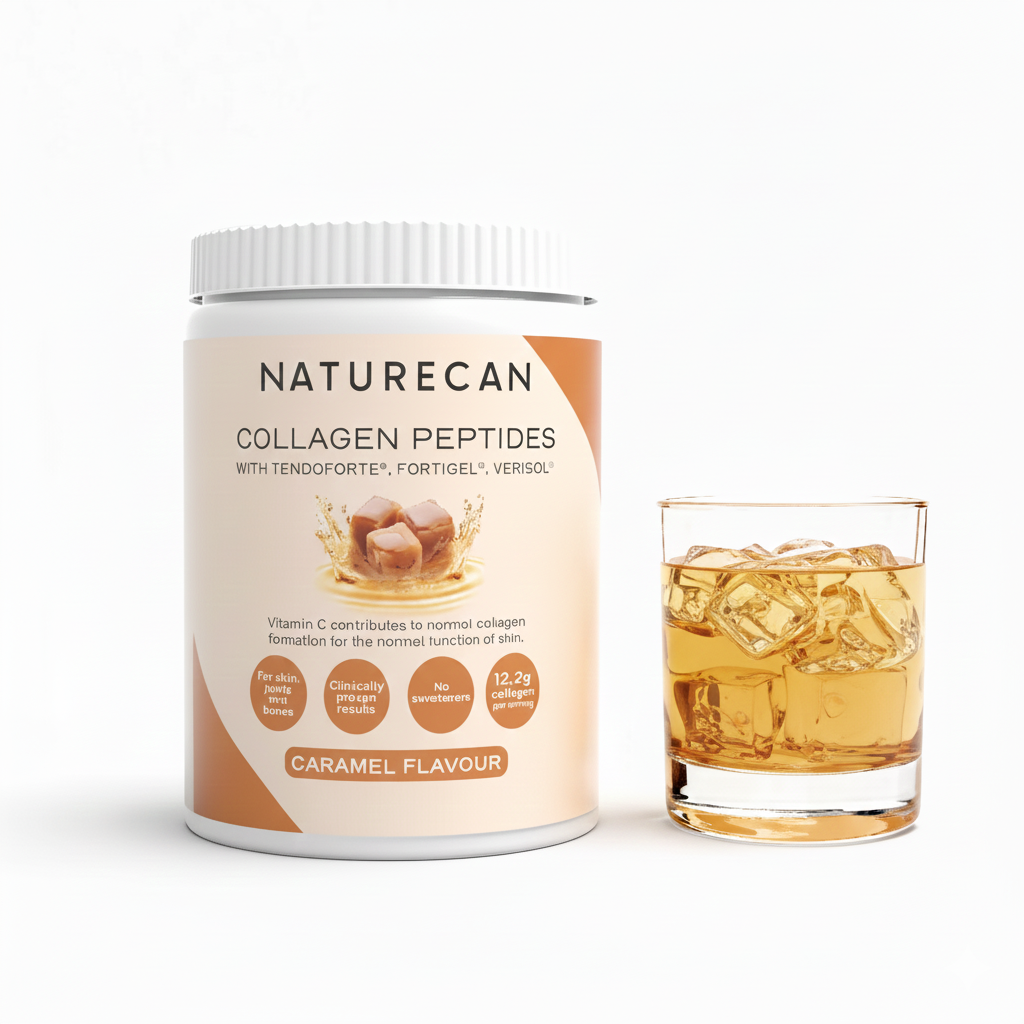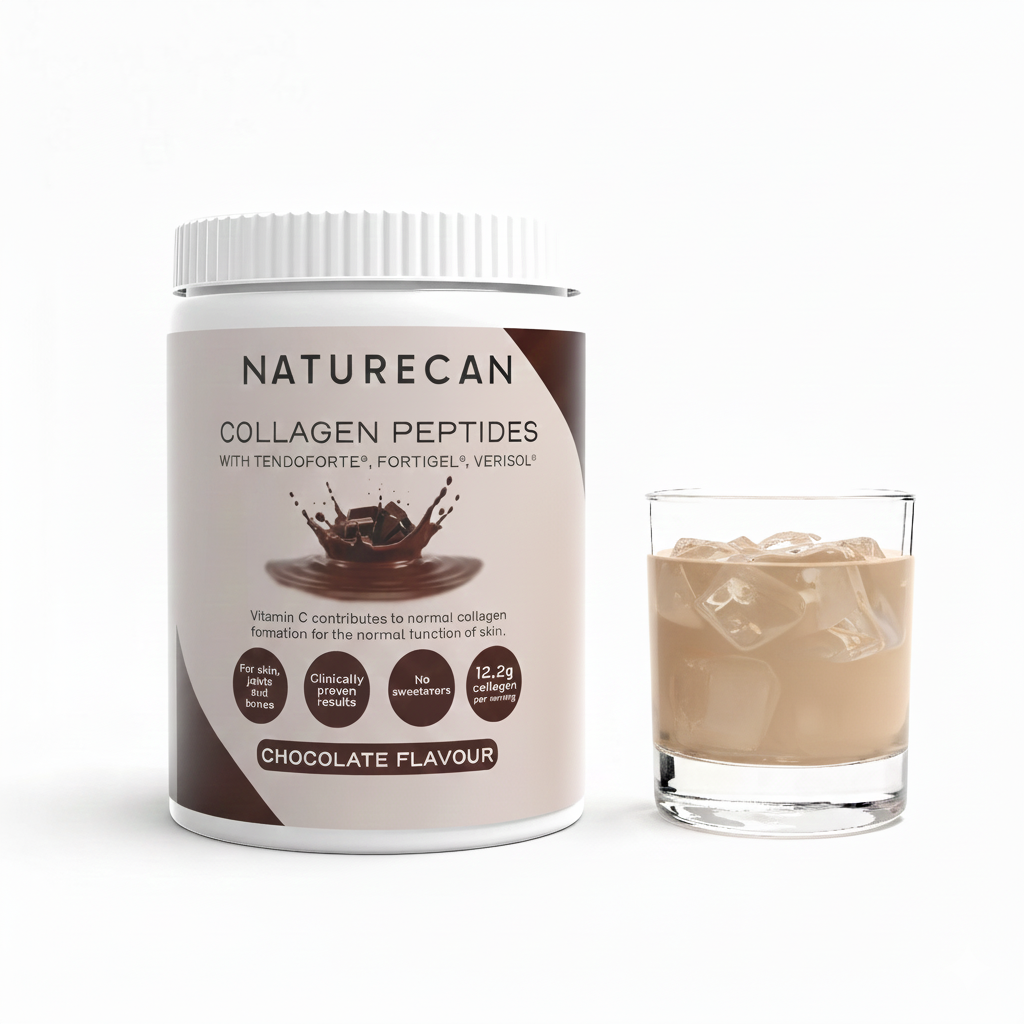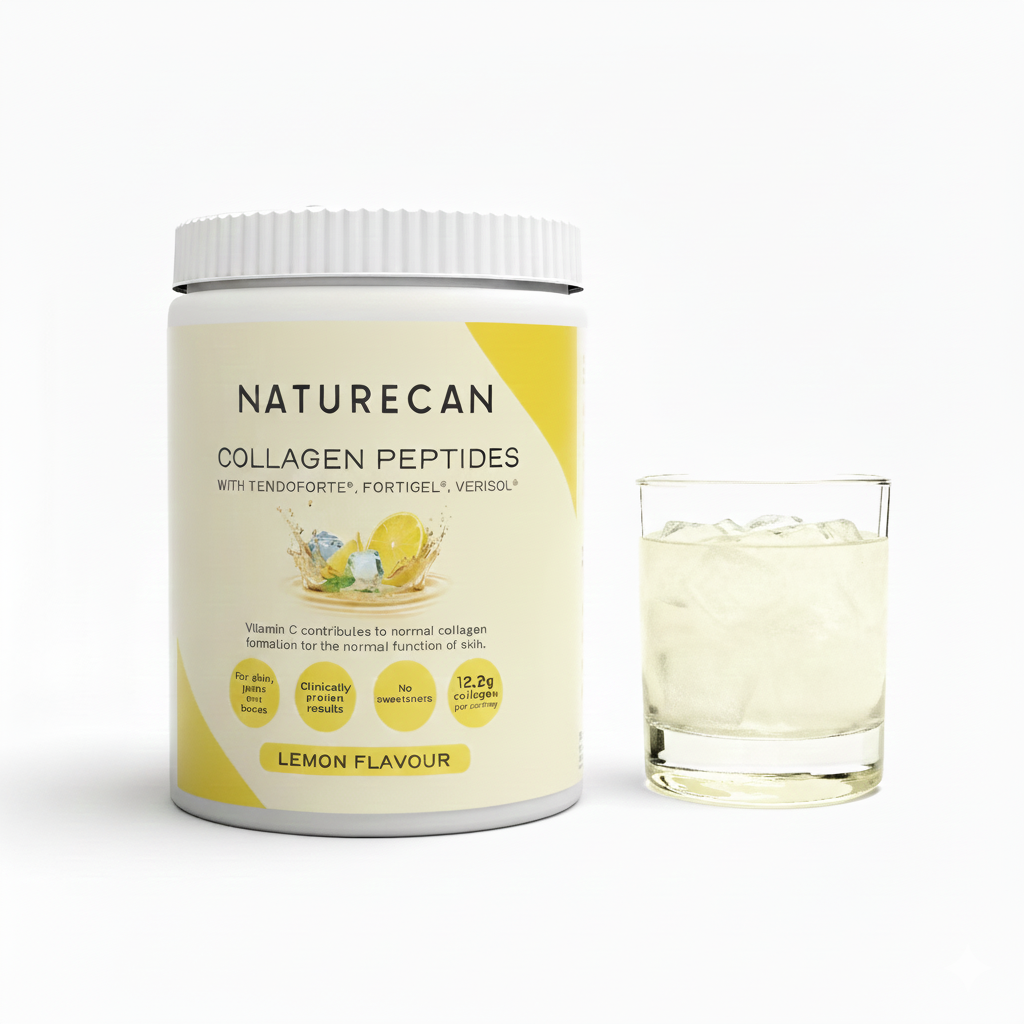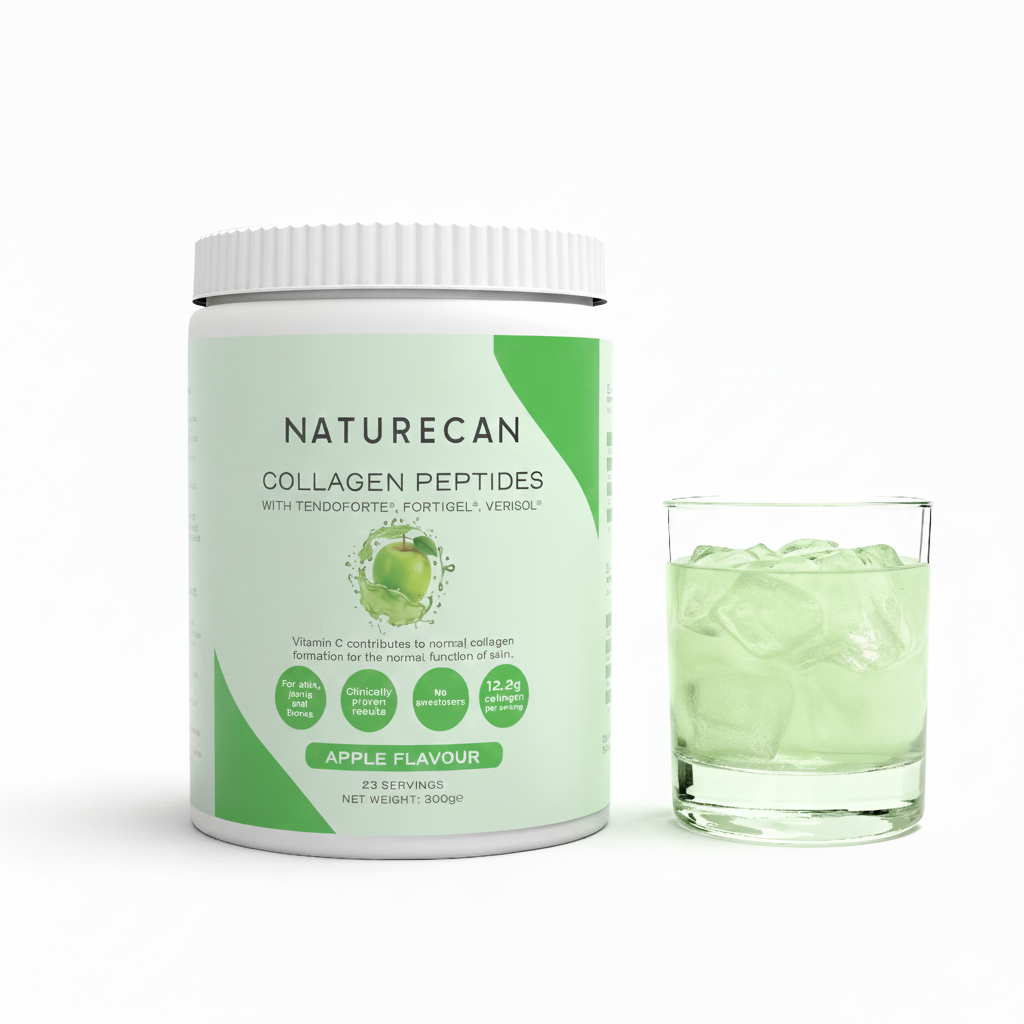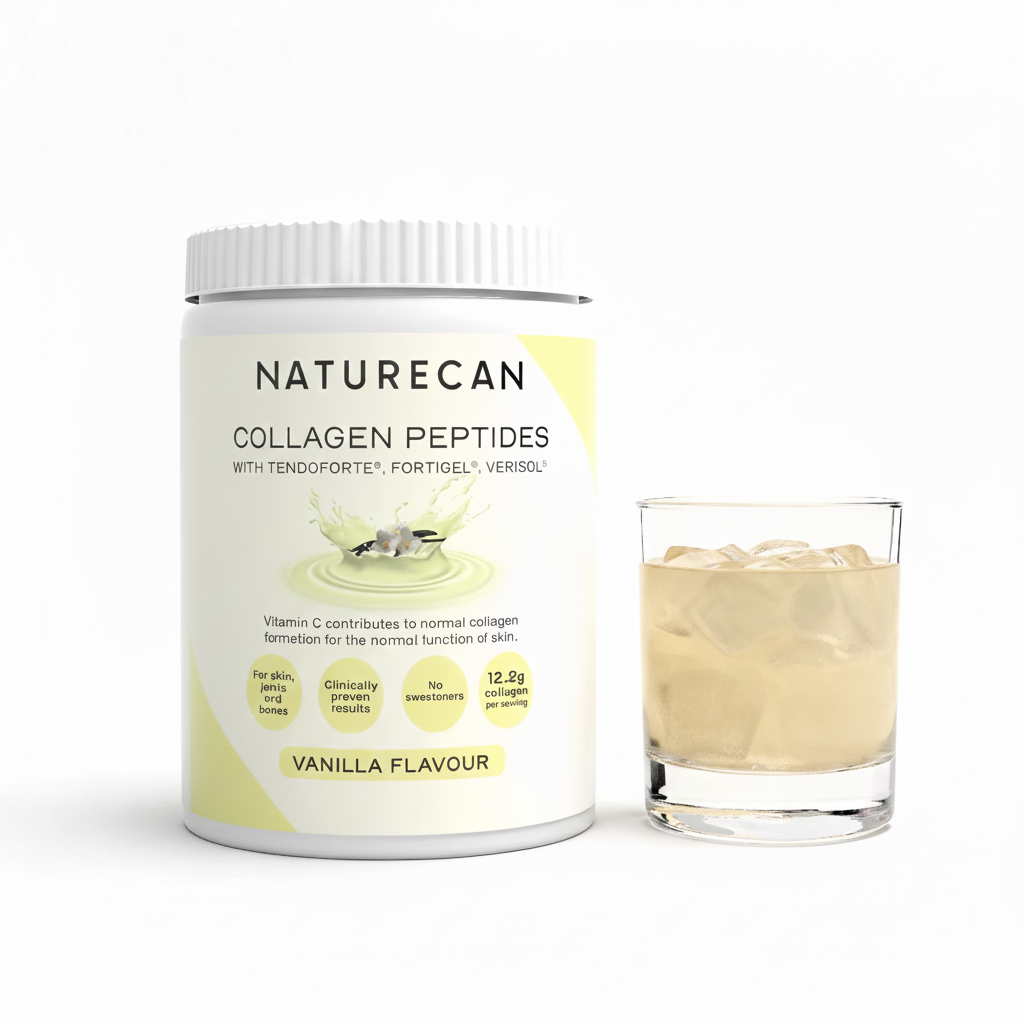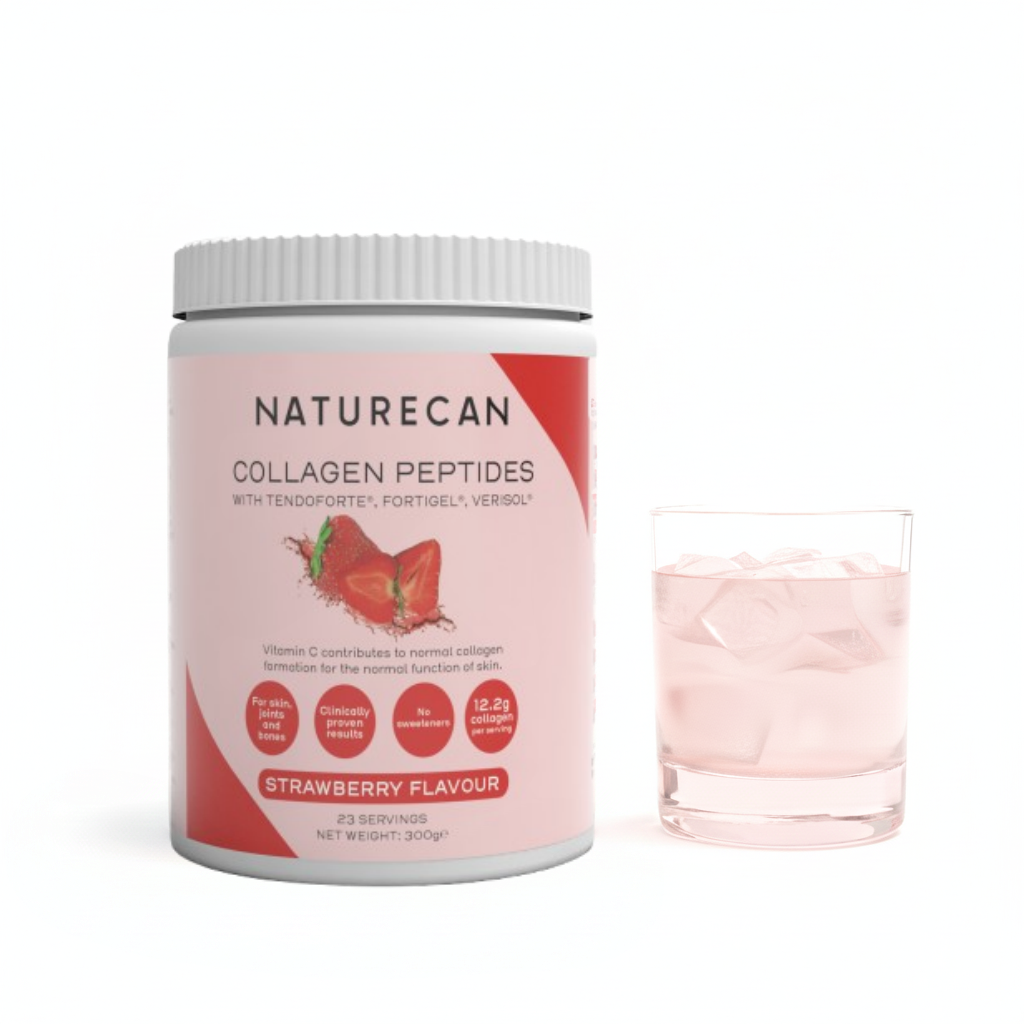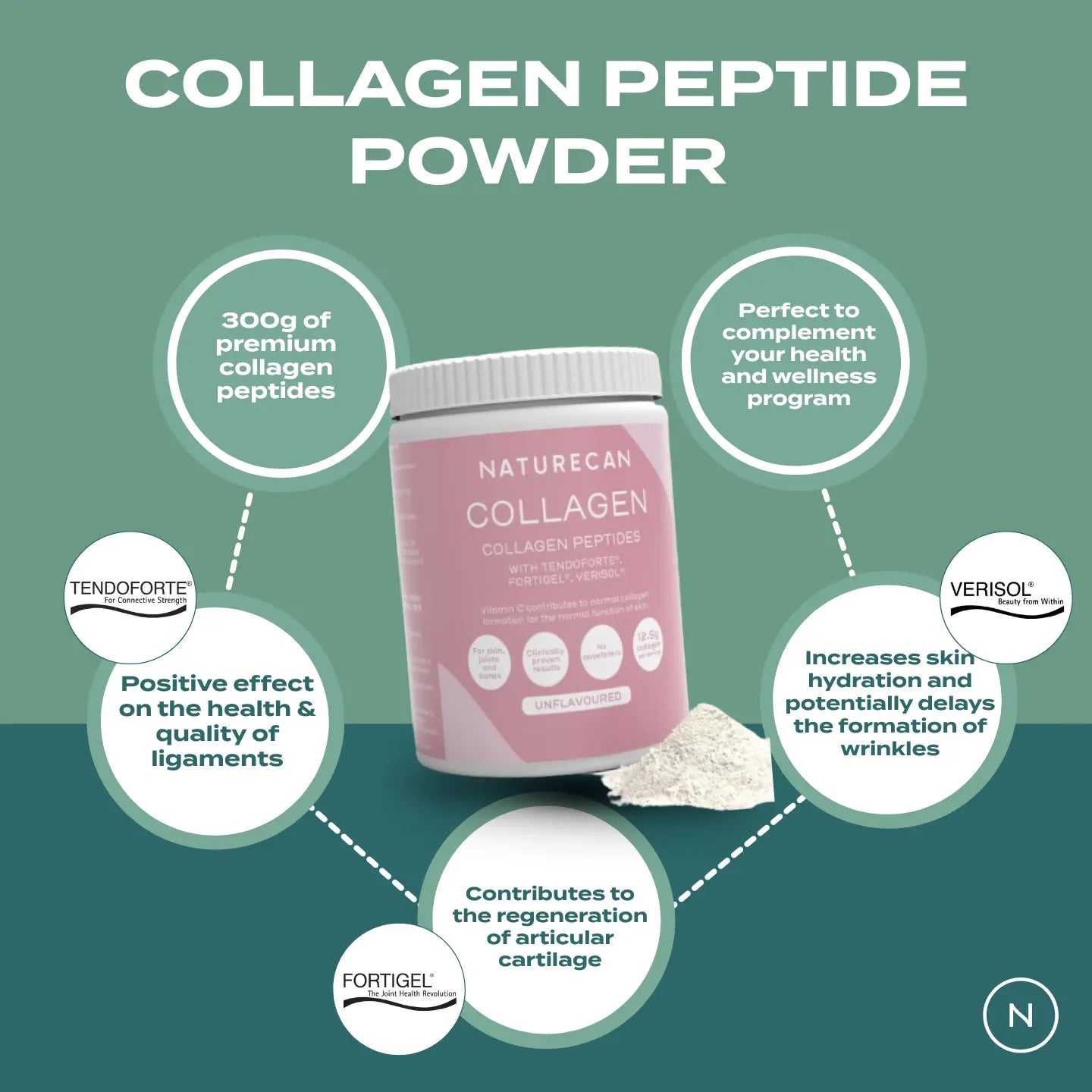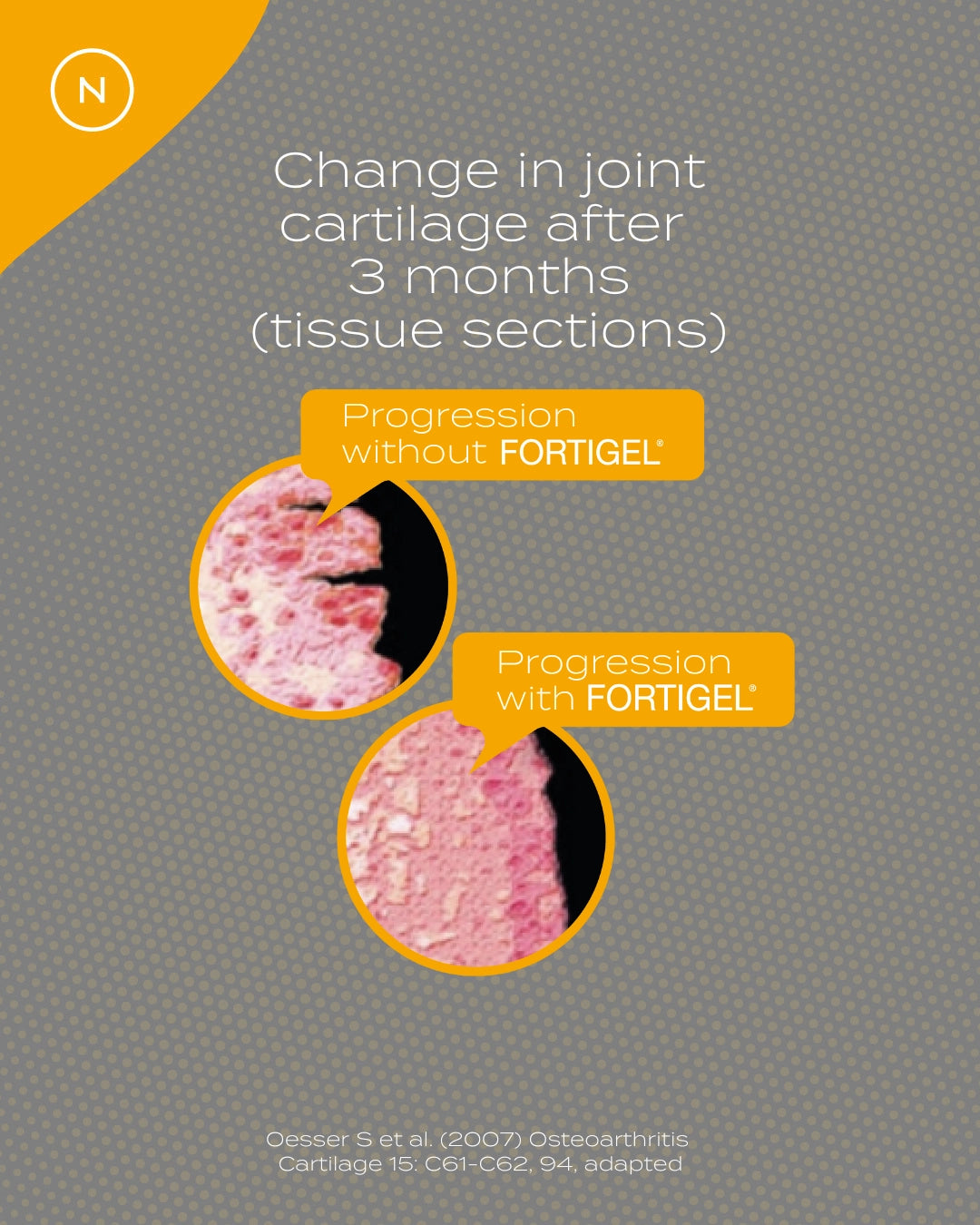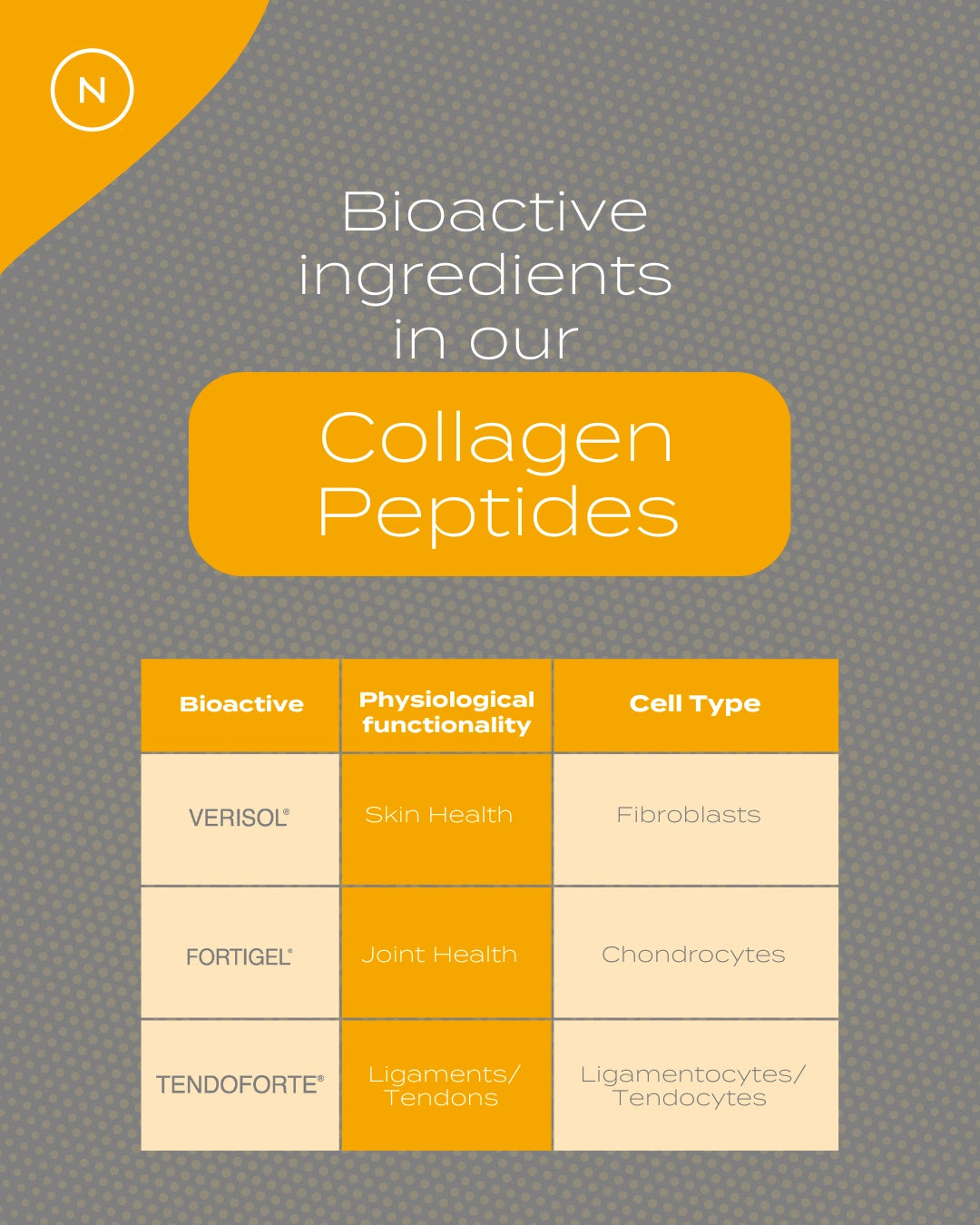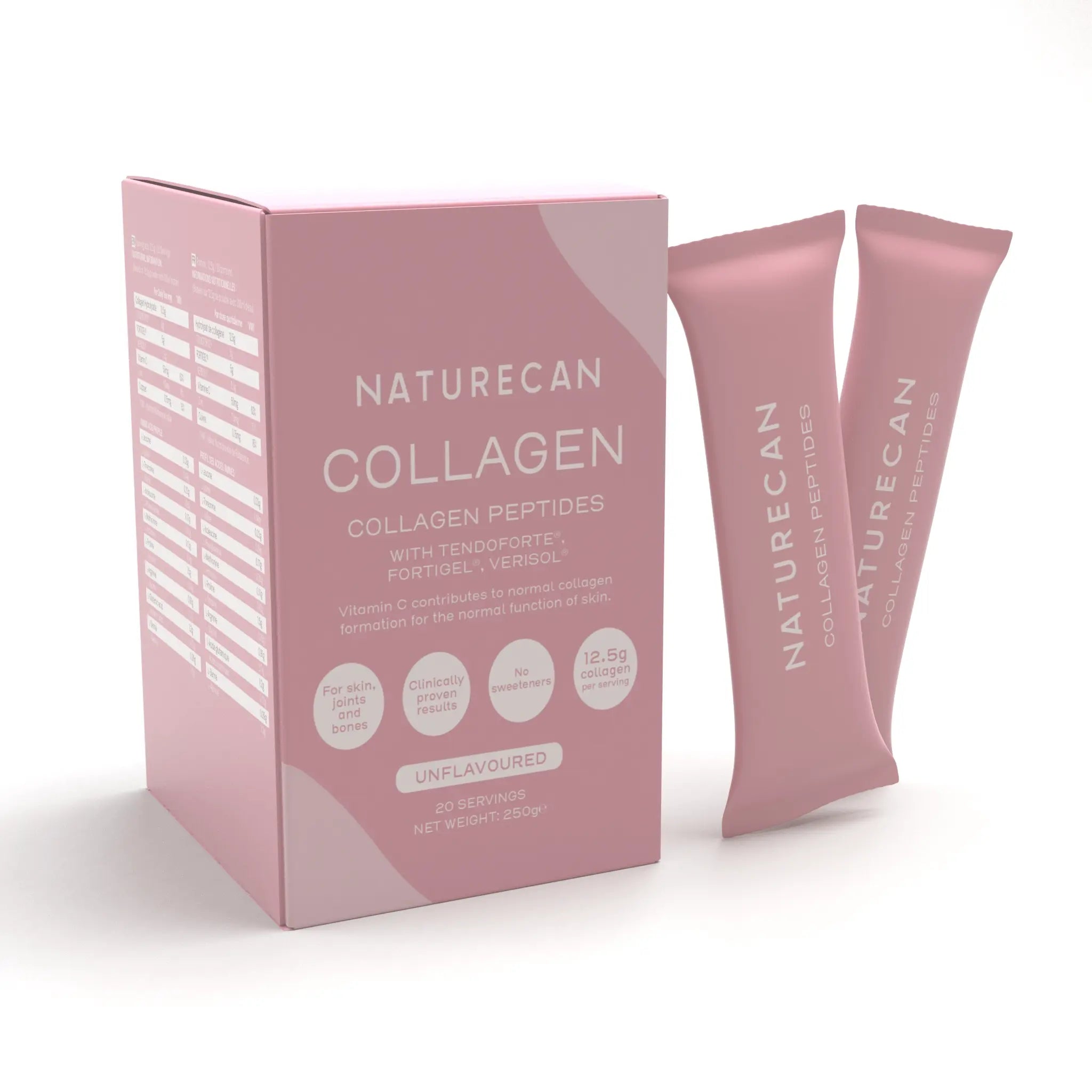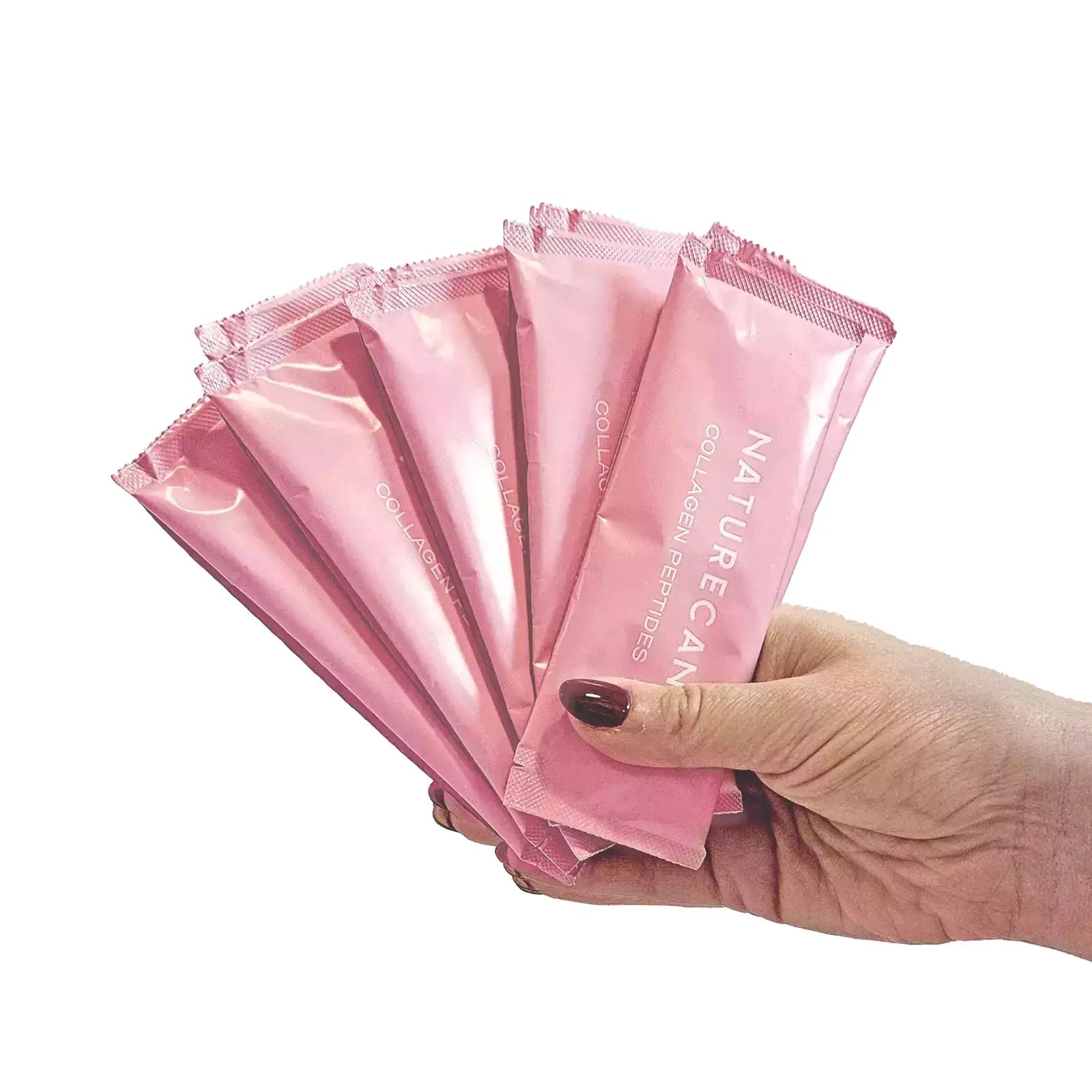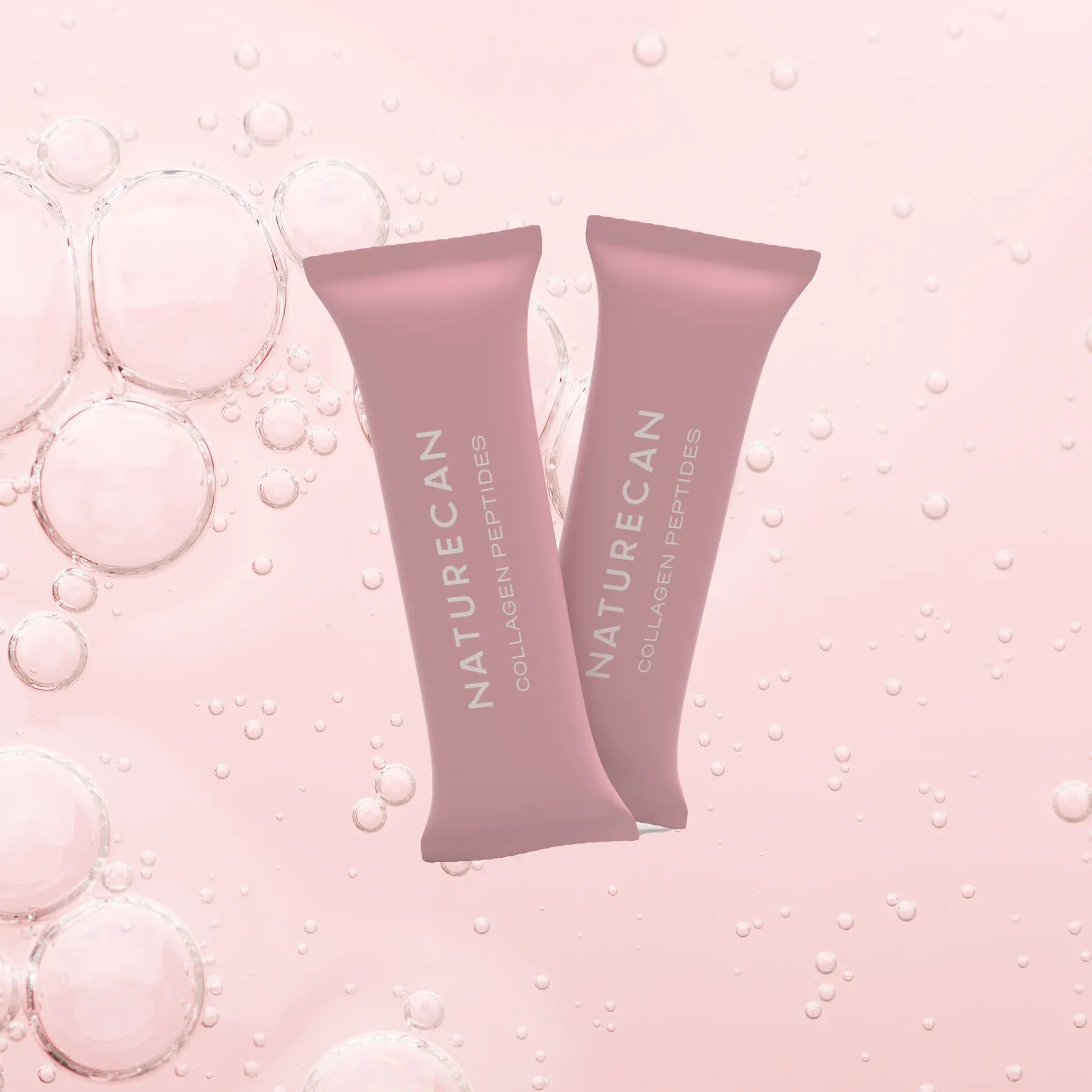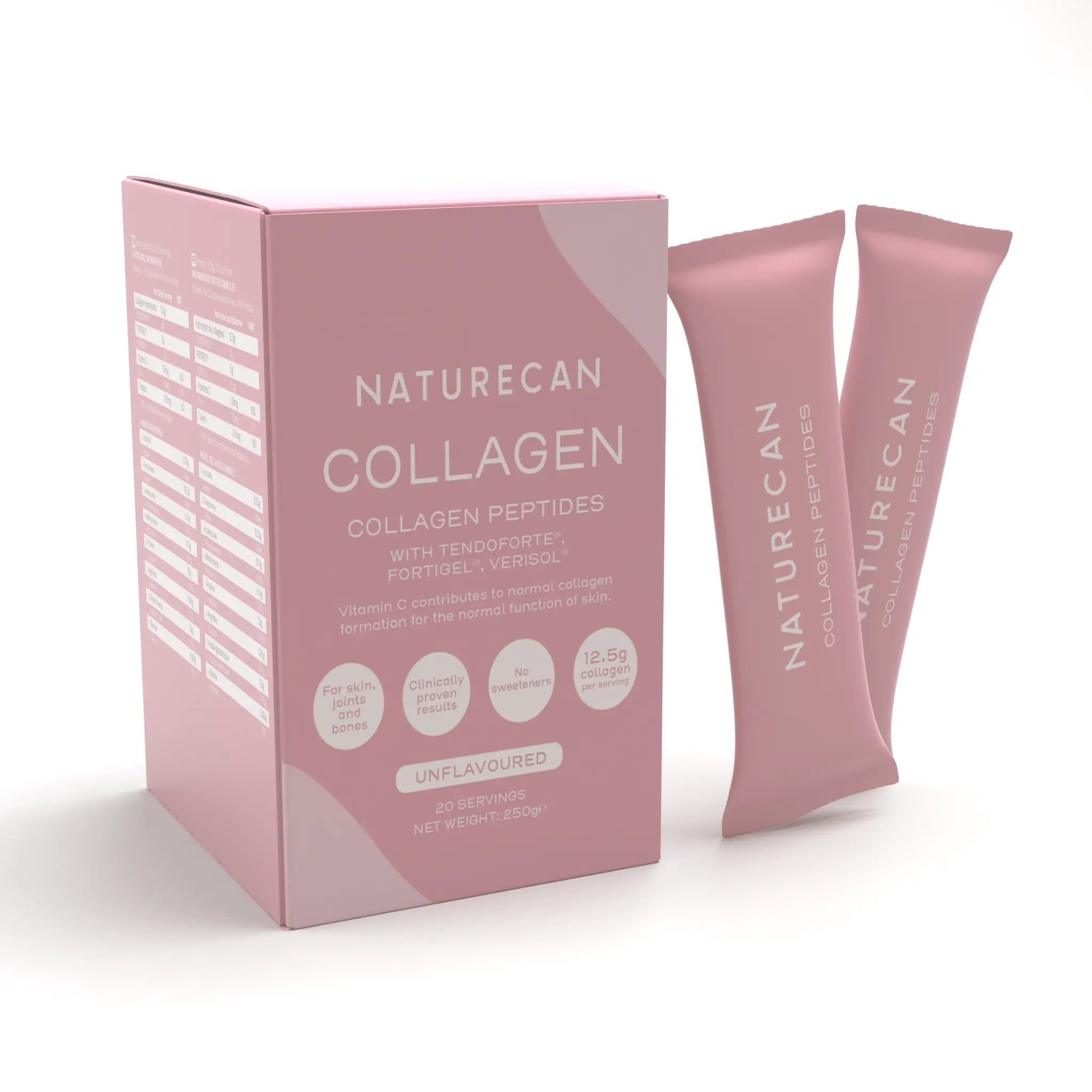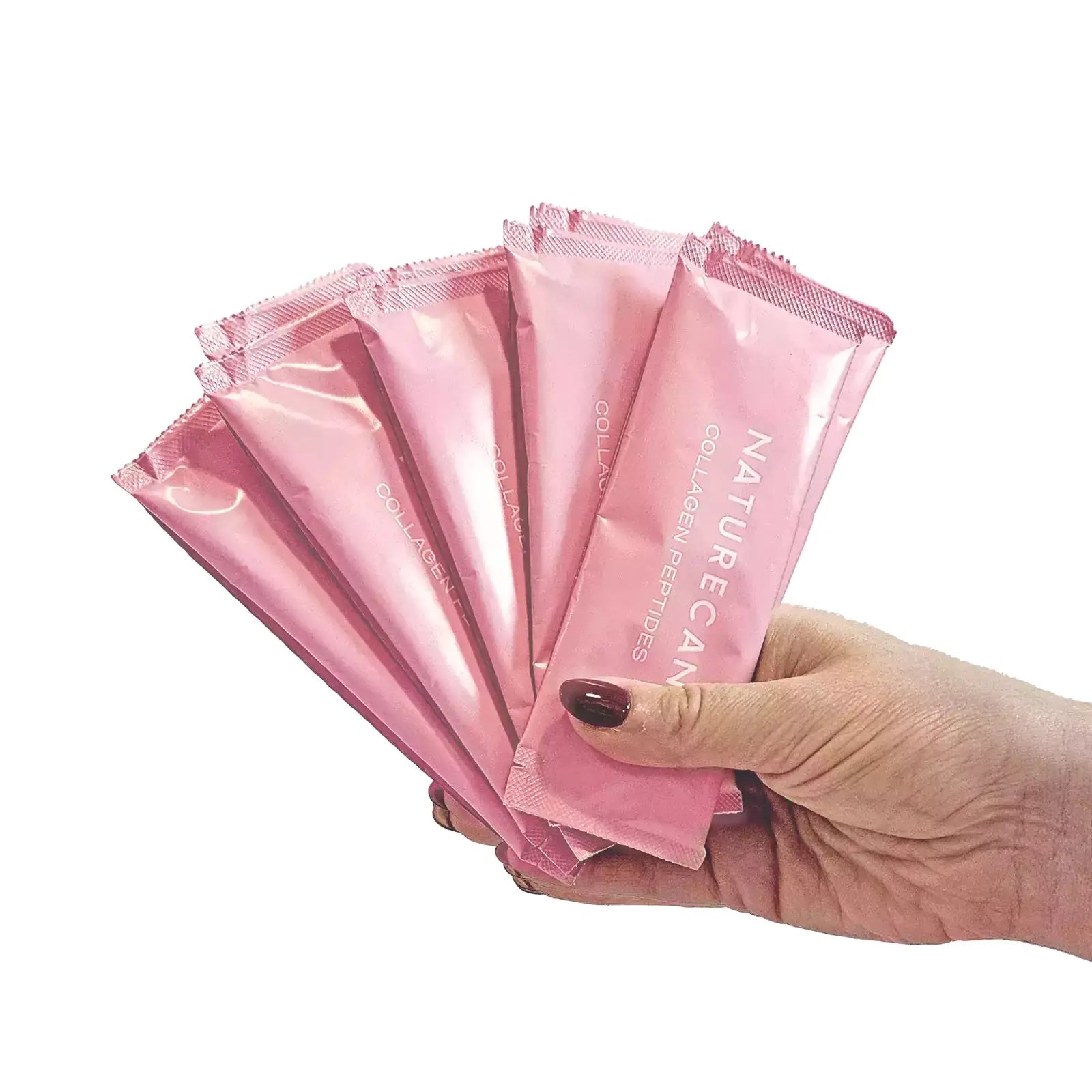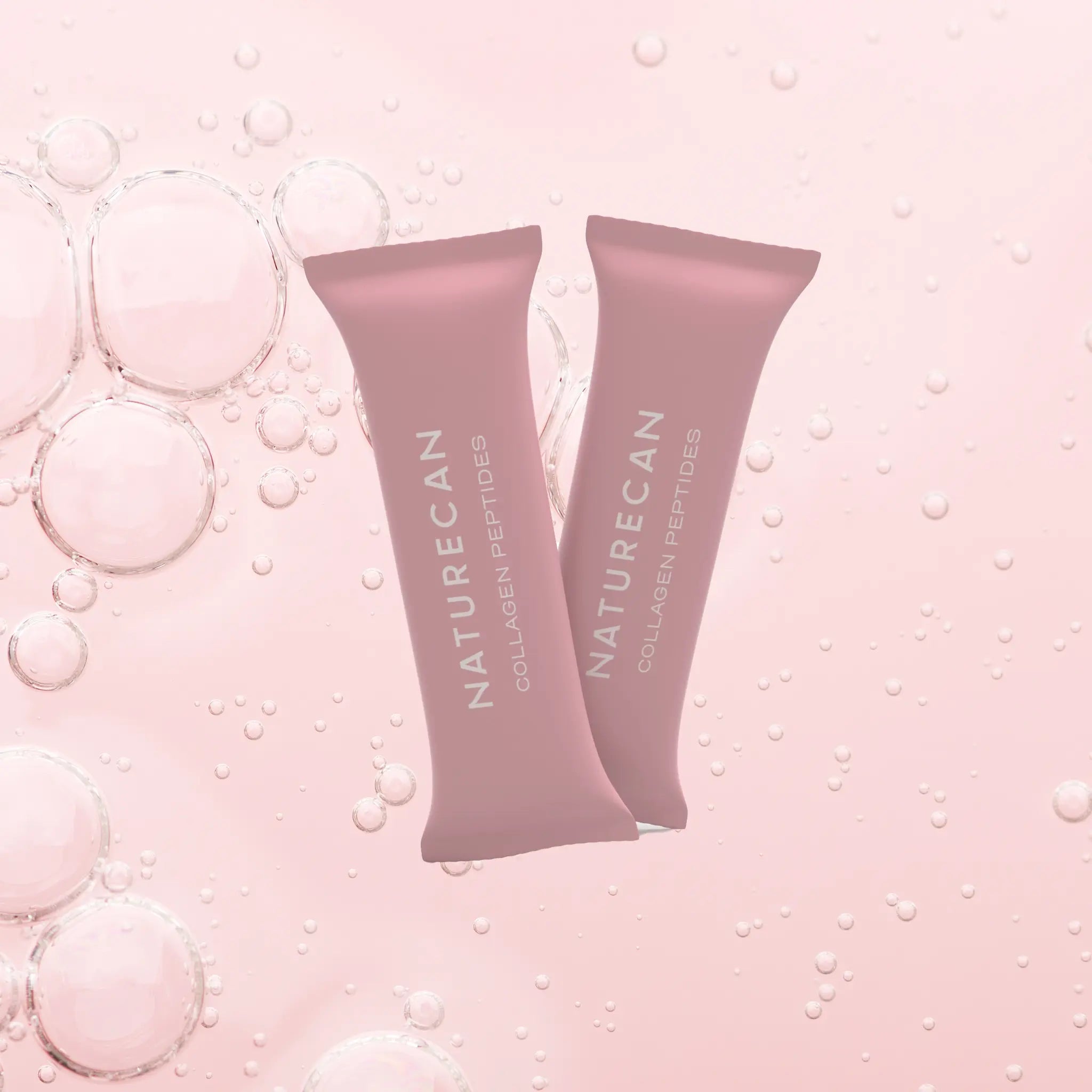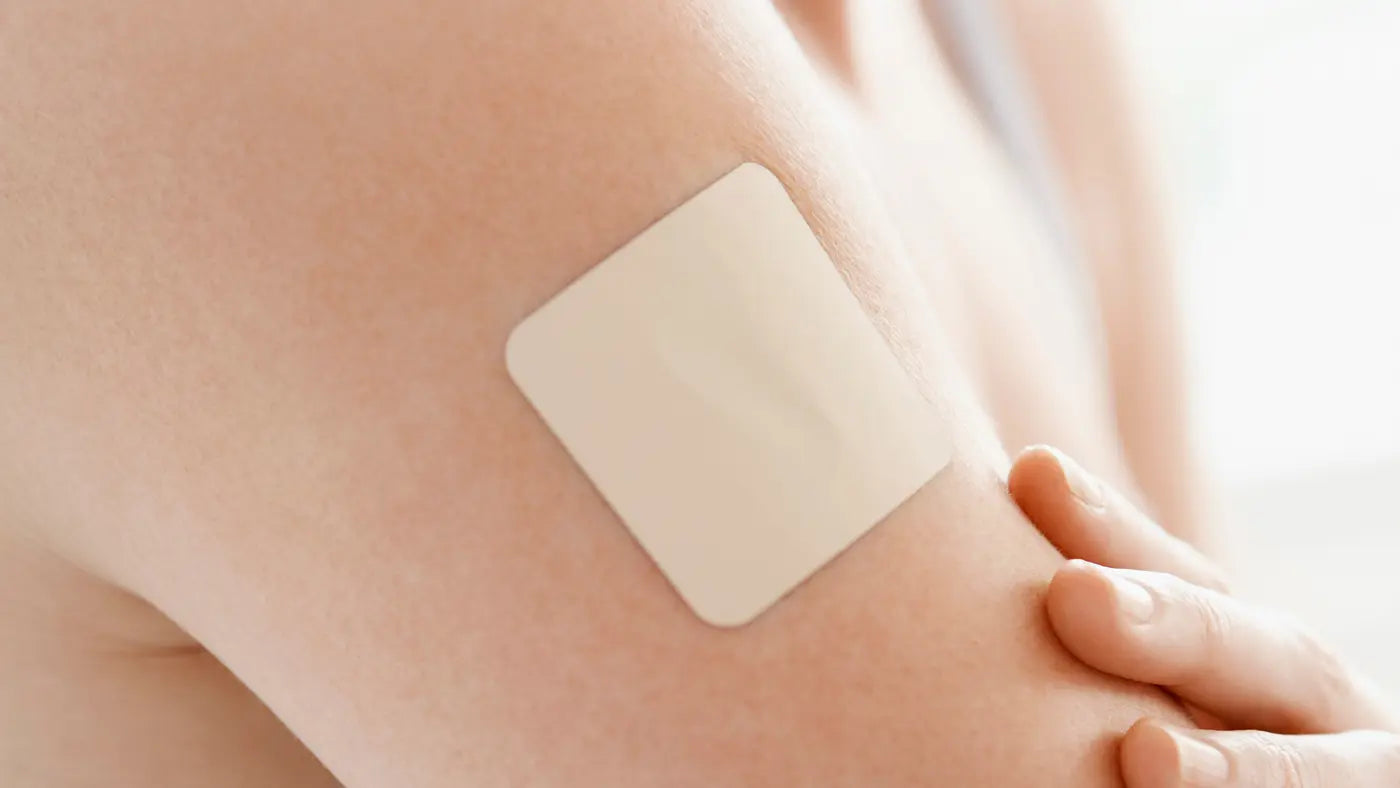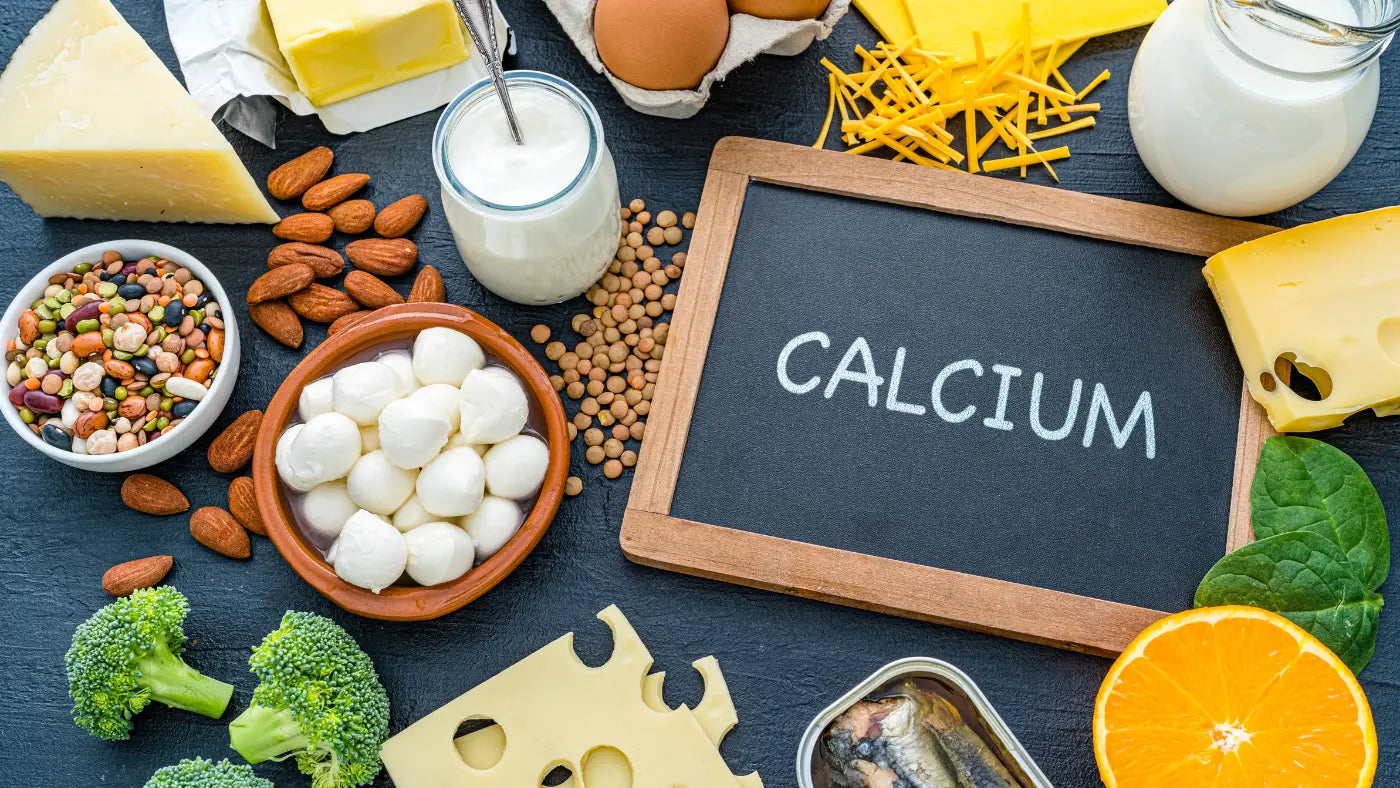Best Collagen Supplements In The UK | Do They Really Work?

Written by Jordan Caulfield & Reviewed by Paul Holmes.
If you’ve spent any time on social media lately, chances are you’ve seen an influencer in the wellness industry raving about collagen supplements.
From influencers stirring collagen powder into their morning lattes to beauty editors calling it a “must-have” for glowing skin, collagen has become one of the UK’s most popular wellness trends.
But with so much hype, it’s natural to wonder: Do collagen supplements really work? Are they safe? And which ones are worth your money?
In this guide, we’ll break it all down for you: What collagen actually is, why it matters, how to spot a high-quality collagen supplement, and which supplements stand out in the UK market. We’ll also look at what the science says, and discuss the benefits for skin, hair, and joints, so that you can make an informed choice.
What Is Collagen?
Collagen is often described as the “glue” that holds your body together. It’s the most abundant protein in your body, found in your skin, bones, tendons, muscles, and even your gut lining.
Without it, we’d lose structure, strength, and elasticity. Collagen is made up of amino acids, mainly glycine, proline, and hydroxyproline.
This unique structure makes it strong and flexible, perfect for keeping your skin firm and your joints moving smoothly[1].
Unfortunately, as we age, collagen production naturally slows down and reduces. Most people start to notice this change in their mid-20s or early 30s.
By the time we’re 50, we may have lost as much as 30% of our natural collagen [2]. That’s when wrinkles, fine lines, and stiff joints start to settle in and become more obvious.
Where Does Collagen Come From in Supplements?
Most collagen supplements aren’t vegan; they’re typically made from animal sources. The two most common types are:
- Marine collagen: made from fish skin and scales, particularly rich in type I collagen (the type that supports skin).
- Bovine collagen: made from cow hides and bones, containing type I and type III collagen (good for skin, muscles, and joints).
Which one is better? That depends on your personal goals, but we’ll compare them a bit later.


Marine or Bovine: What's the Best Collagen for You?
In this article, discover the key differences in Marine Collagen and Bovine Collagen, their different uses, and which one would be the best for you.
Read MoreWhat Makes a Good Collagen Supplement?
Walk into any health store or scroll online, and you’ll see the collagen market is saturated with collagen powders, capsules, and drinks.
But how do you differentiate which supplements do what they are supposed to and contain high-quality, healthy ingredients? Here are a few things to look out for:
- Bioavailability: Hydrolysed collagen (often called collagen peptides) is broken down into smaller pieces, which makes it easier for the body to absorb. It also has a low kDA, the VERISOL® peptides are fairly small (≈ 2 kDa in related products) which tends to help with bioavailability.
- Source: Check if the collagen is marine or bovine, and whether it’s responsibly and ethically sourced, as a lot of supplement brands skim over sustainability.
- Ingredients: The simpler, the better. Avoid products loaded with fillers, sugars, or artificial flavourings.
- Testing: A trustworthy brand will have third-party lab tests or a Certificate of Analysis (COA) available to prove quality.
- Research-backed: Look for brands that reference actual studies, not just marketing buzzwords or generic claims.

Featured Supplement:
Collagen Peptides
Enhance your well-being with our advanced collagen peptides supplement! Designed to support your body during times of stress and increased nutritional demands, this innovative formula features three powerful ingredients, supported by 15 clinical studies—providing far more than your standard collagen supplement.
Potential Benefits:
- Variety of flavours
- Scientifically supported ingredients
- Halal
- Also contains Zinc and Copper
- Made in Germany
- 12.5g Collagen per serving
Ingredients Explained
VERISOL®
Bioactive collagen peptides tailored for skin health. Clinical trials have shown that VERISOL® can improve skin elasticity, hydration, and even reduce wrinkle depth.
In a 2014 randomised, placebo-controlled trial published in Skin Pharmacology and Physiology, women taking VERISOL® showed a measurable increase in skin elasticity after just four weeks, with reduced wrinkle depth after eight weeks. [3]
The peptides are very small (≈2 kDa), making them highly bioavailable and effective at stimulating fibroblasts — the skin cells that produce collagen and elastin.
TENDOFORTE®
Formulated for tendons and ligaments, which are slow to repair. Research has demonstrated that supplementation with TENDOFORTE®, especially alongside exercise, can improve tendon structure and reduce the risk of injury by enhancing collagen synthesis in connective tissue.
A 2019 study in the Journal of Sports Science and Medicine found that athletes supplementing with TENDOFORTE® alongside training experienced improved tendon structure and reduced injury risk compared to placebo. [4]
FORTIGEL®
A patented collagen blend developed for joint and cartilage health. A 2016 clinical trial published in Osteoarthritis and Cartilage showed that FORTIGEL® supplementation stimulated cartilage regeneration and improved joint mobility in people with activity-related knee pain. [5]
It acts on chondrocytes (the cells that build cartilage), supporting long-term joint function and comfort.
What Does Collagen Do, and Does It Work?
So, the main question: do collagen supplements really work?
The evidence so far is encouraging.
Studies have shown that taking collagen can help improve skin hydration and elasticity, reduce the appearance of wrinkles, and even support joint comfort[6, 7].
Let’s look at some of the specific ways collagen may help.
1. Does Collagen Help with Hair Growth?
If you’ve noticed your hair becoming thinner or more fragile, you’re not alone.
Collagen provides amino acids that your body uses to build keratin, the main protein in hair. It also has antioxidant properties that may help protect hair follicles from damage.
A 2022 review suggested that collagen could support scalp and hair health, potentially making hair stronger and thicker [8].
While it’s not a magic hair-growth solution, it could be a useful part of your routine and beneficial in keeping on top of overall hair health.

2. What Does Collagen Do for Skin?
This is where collagen can really be beneficial. It’s directly linked to skin’s firmness, elasticity, and overall hydration.
As collagen declines, skin becomes thinner and less elastic, which is when fine lines and sagging begin to appear.
A recent review found that people who took oral collagen peptides had noticeable improvements in skin elasticity and hydration compared with those who didn’t [1].
That’s why collagen is often talked about in the context of anti-ageing.

Best Bovine Collagen – Naturecan
Naturecan’s Collagen Peptides powder is a strong bovine-collagen pick, especially if you want something backed by clinical complexes. Key points:
- Dosage: About 12.5 g per serving (collagen hydrolysate) in their sachets or powder forms.
- Complexes included: TENDOFORTE® (tendons & ligaments), FORTIGEL® (joints & cartilage), and VERISOL® (skin & beauty).
- Flavours & clean formula: Comes in flavours like Apple, Strawberry, Caramel, Chocolate, Vanilla, plus unflavoured. No artificial sweeteners in the basic formula.
- kDa / molecular weight: Peptides are hydrolysed and low molecular weight for better absorption. The VERISOL® peptides are fairly small (≈ 2 kDa in related products) which tends to help with bioavailability.

Best Marine Collagen – Absolute Collagen
Currently at Naturecan, we don't provide specific Marine-based Collagen. Absolute Collagen is a good pick for marine collagen. High-level selling points:
- Delivers 8,000 mg per sachet of hydrolysed marine collagen plus Vitamin C. Liquid form helps absorption.
- No lactose, gluten, dairy, or artificial flavours. Cleaner for people with dietary restrictions.
- Backed by clinical-style testing: they’ve done robust studies to show visible skin, hair, nail benefits.

Which Collagen Is Best for Anti-Ageing?
Marine collagen is usually the collagen of choice if your main goal is anti-ageing, since it’s particularly good for skin. That said, bovine collagen can also help you age more gracefully and support longevity by keeping joints strong and muscles supported.
Pair it with a smart anti-ageing skincare routine for the best results.
Which Supplements Work Best with Collagen?
Collagen works effectively alone, although it requires some support to achieve the best possible results. These include:
- Vitamin C: essential for collagen synthesis.
- Zinc: helps with skin repair and overall health.
- Hyaluronic acid: works with collagen to keep skin hydrated and plump.

Naturecan Collage Sachets
Also available in sachet form! Enhance your well-being with our advanced Collagen sachets. Specifically crafted for convenience, this unique formula offers more than the conventional collagen products by combining three powerful ingredients, each backed by 15 clinical studies.
Potential Benefits:
- 20 Servings of premium Collagen Powder
- 12.5g Collagen per serving
- Scientifically supportive ingredients
- Made in Germany
- Perfect for on-the-go
- Also contains Zinc and Copper
5 Other Potential Benefits of Collagen
We’ve discussed skin and hair, but collagen may have plenty more to offer than just these benefits alone. Here are five worth knowing:
1. May Support Joint Health
Collagen helps cushion your joints. Studies suggest it can reduce stiffness and improve mobility in people with osteoarthritis [10].
2. May Support Heart Health
Collagen may provide structure to arteries. Some studies indicate it may help keep them flexible, which is important for circulation [10].
3. May Improve Gut Health
Collagen contains amino acids such as glycine and glutamine, which play a key role in maintaining a healthy gut lining. This could potentially support digestion and gut health, though more research is needed.
4. May Boost Muscle Mass
A 2015 study showed that collagen supplementation, combined with resistance training, has been demonstrated through research to help older adults increase muscle strength and maintain lean mass [10].
5. May Improve Sleep Quality
A 2023 study found that collagen peptides may support sleep quality, as they contain glycine, an amino acid known to calm the nervous system.
The study demonstrated that supplementing collagen peptides before bedtime reduced sleep fragmentation and improved cognitive function in physically active males with reported sleep complaints. [11]
While more research is needed specifically on collagen peptides and sleep, incorporating collagen into your evening routine may support both restful sleep and overall wellness.


Collagen Supplements in the UK
Where Can I Get Collagen In The UK?
Collagen supplements are widely available in the UK, both online and in high-street health shops. You can find them in powder form (easy to mix into drinks), capsules, or ready-to-drink sachets.
Online retailers often offer a wider range of choices and more detailed product information. Naturecan’s collagen range is available directly through our website, with the reassurance of third-party testing and high-quality sourcing.
Is It Worth Taking Collagen Supplements In The UK?
Yes, aside from the visible signs of ageing, collagen can help with skin hydration and joint comfort for some people, but results vary and the benefits are usually modest.
A balanced diet with enough protein and vitamin C also supports collagen naturally.
Does the NHS Recommend Collagen Supplements?
No, the NHS doesn’t officially recommend collagen supplements, so it’s a personal choice and a natural boost rather than medical advice.
Is Collagen Safe?
For most people, collagen is considered a safe substance. Reported side effects are rare and usually mild side effects reported include symptoms such as slight bloating or a lingering aftertaste.
The primary consideration is quality. A supplement that’s been third-party tested will provide you peace of mind.
If you’re pregnant, breastfeeding, or on medication, it’s always best to check with your GP before starting collagen supplementation.
Can You Boost Collagen Naturally?
Yes, you can naturally boost collagen through lifestyle and dietary changes. Here are some natural ways to help your body produce more collagen:
- Eat protein-rich foods like chicken, fish, beans, and eggs.
- Protect your skin from sun damage.
- Avoid smoking and excess alcohol.
- Prioritise good sleep.
- Reduce your sugar intake, as excessive consumption can damage collagen.
Supplements can give you an extra boost, but lifestyle choices still make a huge difference and support a balanced supplementation routine.

The Longevity Guide: Everything You Need to Know About Longevity


This is our complete beginner's guide to Longevity. We explain what it is, what studies are available, where it comes from, what it is used for, and a few other facts you may not know.
Final Thoughts
Collagen is one of the proteins in the body that we don’t necessarily think about until we start noticing the changes and effects of losing it.
Wrinkles, stiff joints, weaker hair, they’re all linked to declining collagen levels.
Thankfully, supplements can help. The best collagen supplements in the UK are those that are high-quality, hydrolysed for absorption, and backed by third-party testing.
It’s never too late to start supporting your body from the inside out. Whether your goal is healthier skin, stronger hair, or simply feeling better as you age, collagen could be a smart addition to your daily routine.
FAQ's
When is the best time to take collagen?
There isn’t necessarily a “best” time to take collagen, it depends on your routine. Many people prefer to take collagen in the morning in powder form, mixing it into coffee, smoothies, or porridge for a convenient start to the day.
Others take it in the evening before bed, mainly as collagen is often paired with amino acids like glycine, which may support sleep quality. The most important factor is consistency. Whether you take it in the morning or at night, aim to take collagen daily to see results over time.
Can I take collagen alongside medication?
Collagen supplements are generally safe for most people, but if you are taking prescription medication or have a medical condition, it’s always best to check with your GP first. This ensures there are no interactions specific to your health needs. While collagen itself is a natural protein found in the body, supplements sometimes contain added ingredients like vitamin C or flavourings, so it’s worth reviewing the label.
What supplements work best with collagen?
Certain nutrients can work in synergy with collagen, in order to boost its effectiveness. The most important one is vitamin C, which your body needs to actually form collagen. Without it, collagen synthesis slows down. Zinc is another powerful partner, as it supports skin repair and immune function. Hyaluronic acid complements collagen by helping skin stay plump and hydrated. Taking these alongside collagen, or choosing a supplement that combines them, may help you get the most noticeable results.
How long does collagen take to work?
Collagen isn’t an overnight fix. Most clinical studies report improvements in skin elasticity, hydration, and wrinkle reduction after 8–12 weeks of consistent use. For joint health, some people notice relief from stiffness or discomfort in as little as 4 weeks, though results vary depending on the individual and dosage. The key is patience and daily use, collagen works gradually as your body incorporates the peptides into connective tissues.
Does collagen make you look younger?
Collagen can support youthful-looking skin by improving elasticity, hydration, and firmness. Several studies show that regular supplementation may reduce the appearance of fine lines and wrinkles [1]. While collagen won’t reverse ageing completely, it can help your skin age more gracefully. Pairing collagen with a balanced diet, sun protection, and a smart skincare routine enhances these benefits.
Can I take collagen while pregnant?
Collagen is a natural protein, but if you’re pregnant or breastfeeding, always consult your GP or midwife before adding any supplement to your routine. Safety data on collagen use during pregnancy is limited, and your healthcare provider can advise based on your specific needs.
Does collagen help with weight loss?
Collagen isn’t a fat-burning supplement, but it may play an indirect role in weight management. Collagen peptides provide protein, which helps keep you feeling full and supports lean muscle mass. Maintaining muscle is important during weight loss because it keeps your metabolism active. So, while collagen won’t cause weight loss on its own, it can support a healthy diet and exercise plan.
Should men take collagen?
Yes, Collagen isn’t just for beauty, it’s essential for joint health, muscle recovery, and skin integrity, making it beneficial for men as well as women. Men who are active, train regularly, or experience joint stiffness with age may especially benefit. Since collagen supports connective tissues, it can be a valuable supplement for men looking to stay strong, mobile, and youthful as they age.
How much collagen should I take per day?
The recommended daily amount varies depending on your goals. Most research suggests that 2.5–10g of hydrolysed collagen peptides per day is effective. For skin health, smaller doses (2.5–5g) have been shown to improve hydration and elasticity. For joint or muscle support, higher amounts (up to 10g) may be beneficial. It’s best to take collagen consistently at the same time each day to see results.
Can I take collagen every day?
Yes, in fact, daily use is recommended. Collagen works gradually by providing your body with amino acids that support skin, hair, joints, and muscles. Skipping doses won’t cause harm, but it may delay results. For the best outcomes, make collagen part of your daily wellness routine, just like your morning coffee or multivitamin.

Reviewed by Paul Holmes
Director of Science and Innovation at Naturecan
Testing for large pharmaceutical & tobacco companies, Paul has built a wealth of scientific and regulatory knowledge, working on regulatory submissions to bodies such as the FDA and the MHRA.
He holds a BSc in Medicinal and Biological Chemistry and sits on the UKAS CBD Food Product Approval Expert Group.


